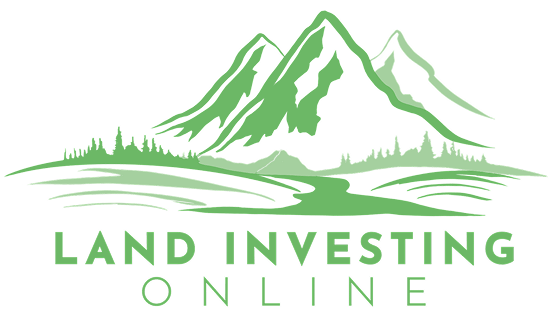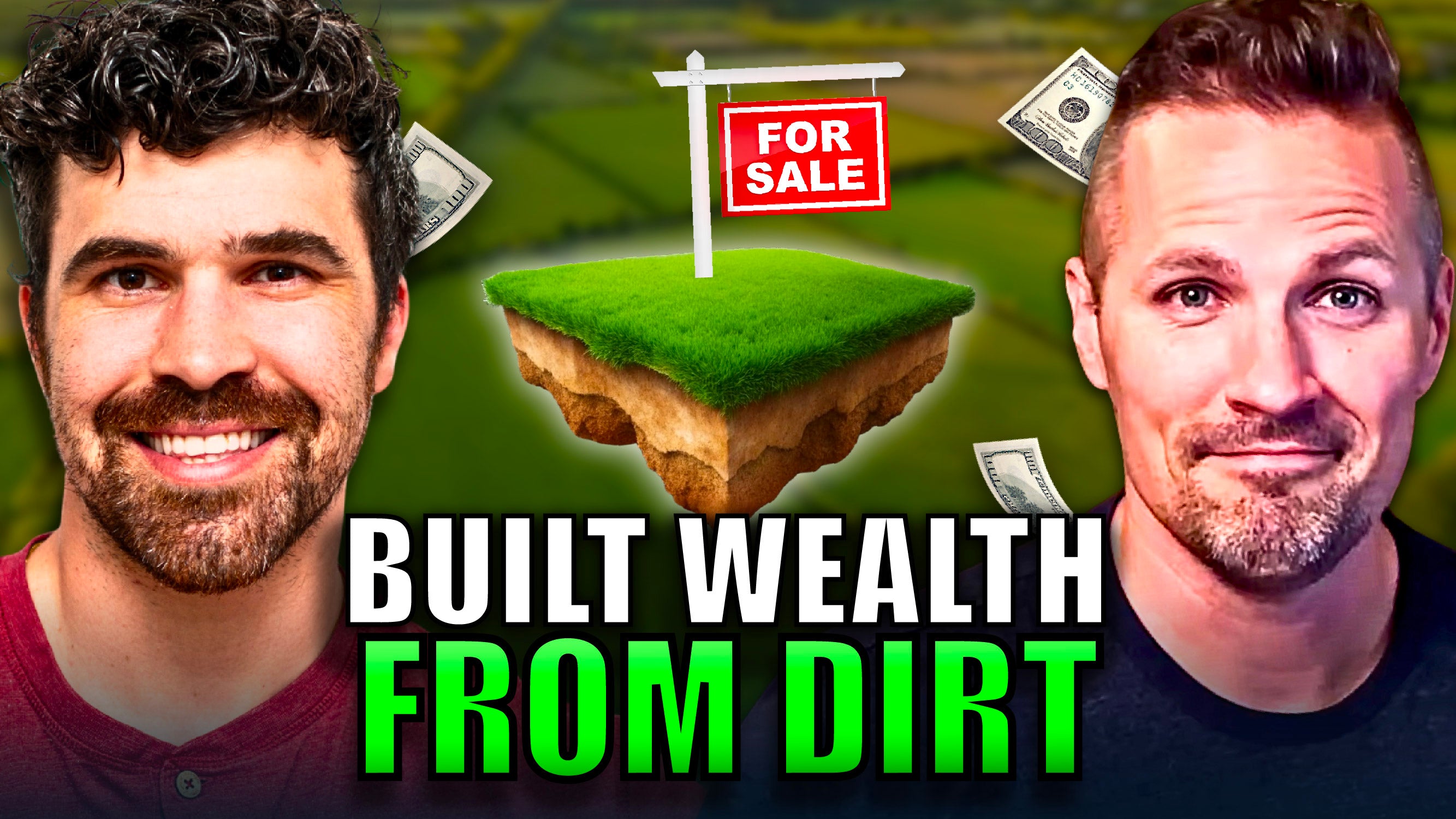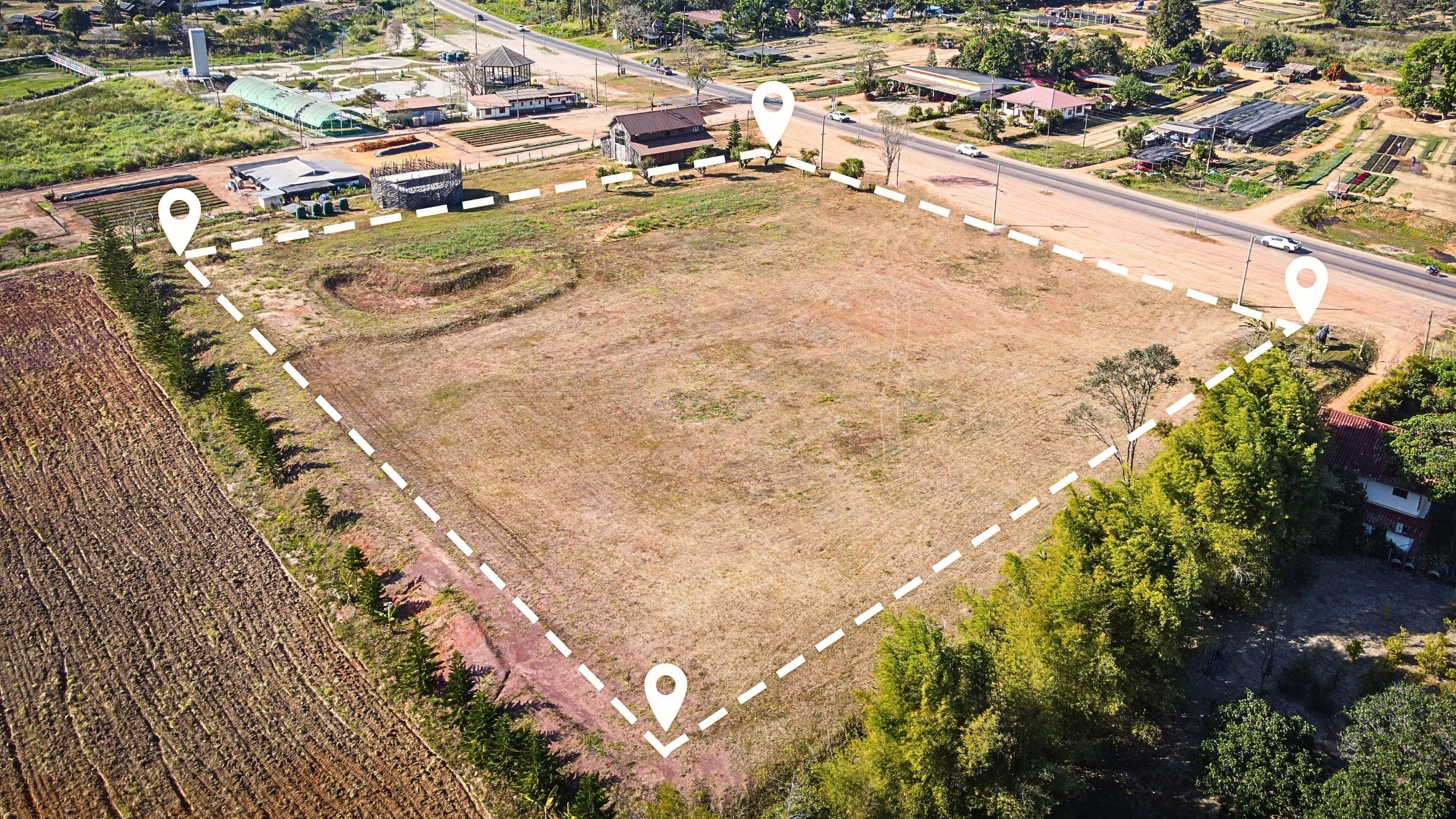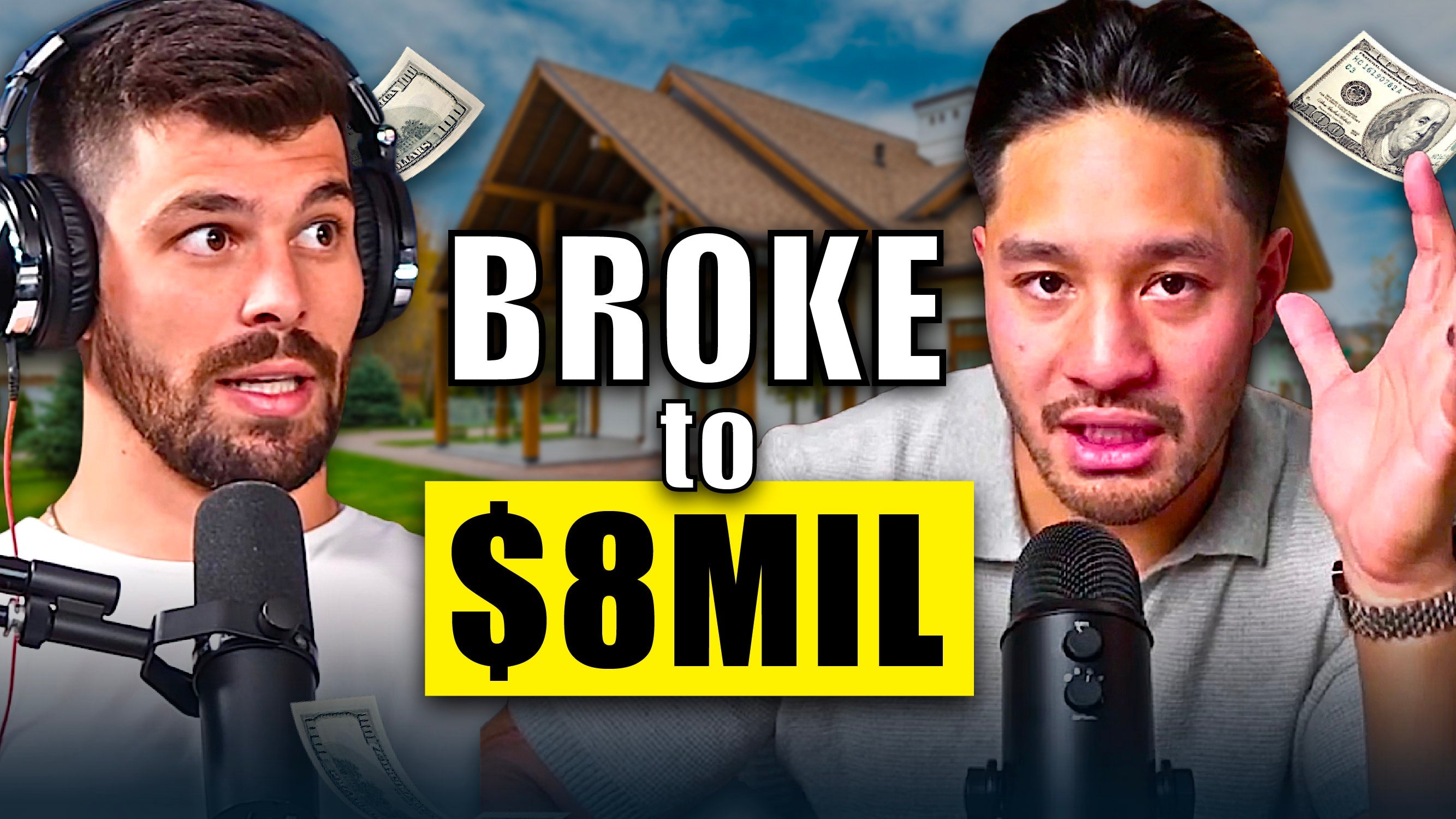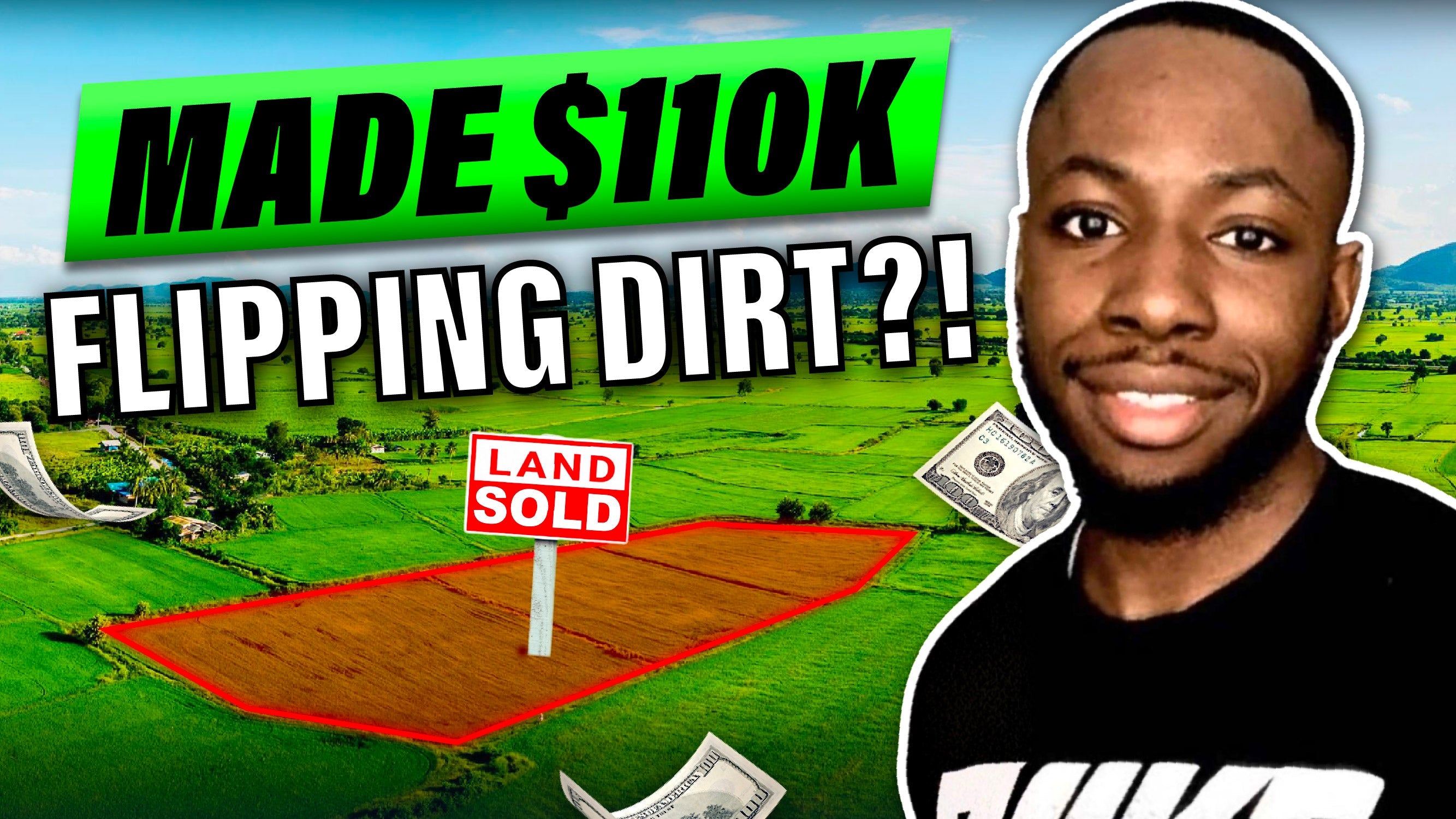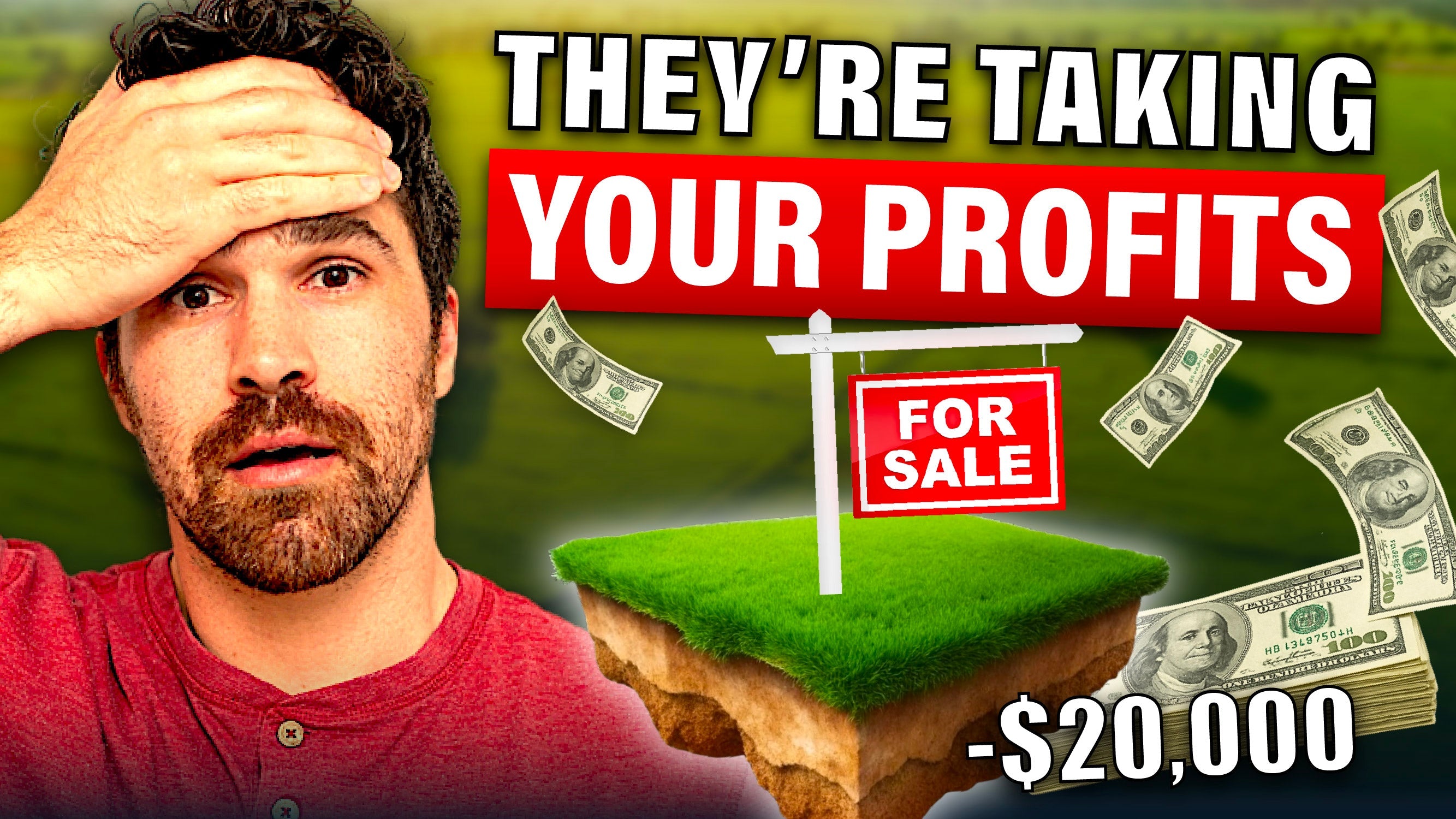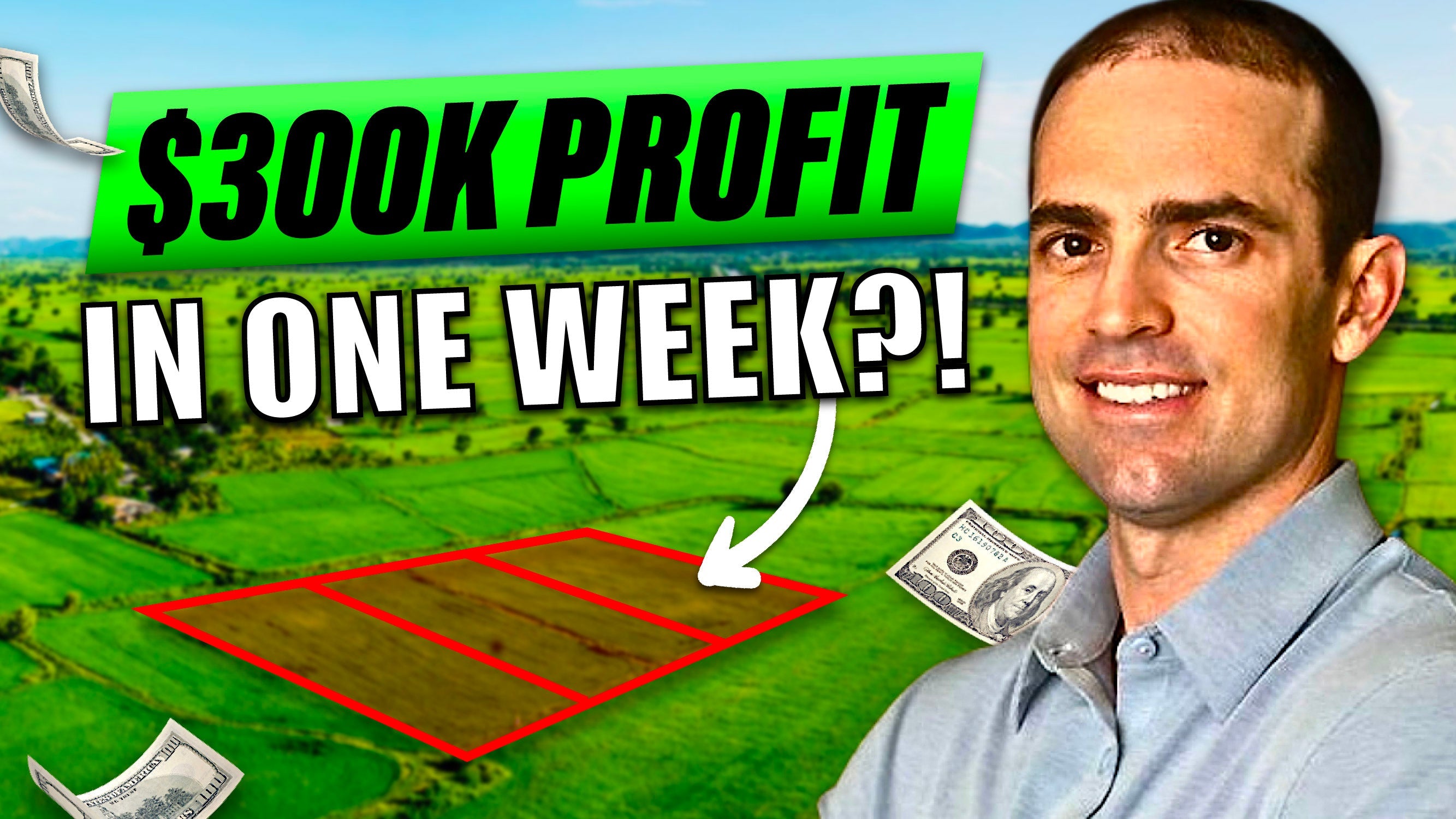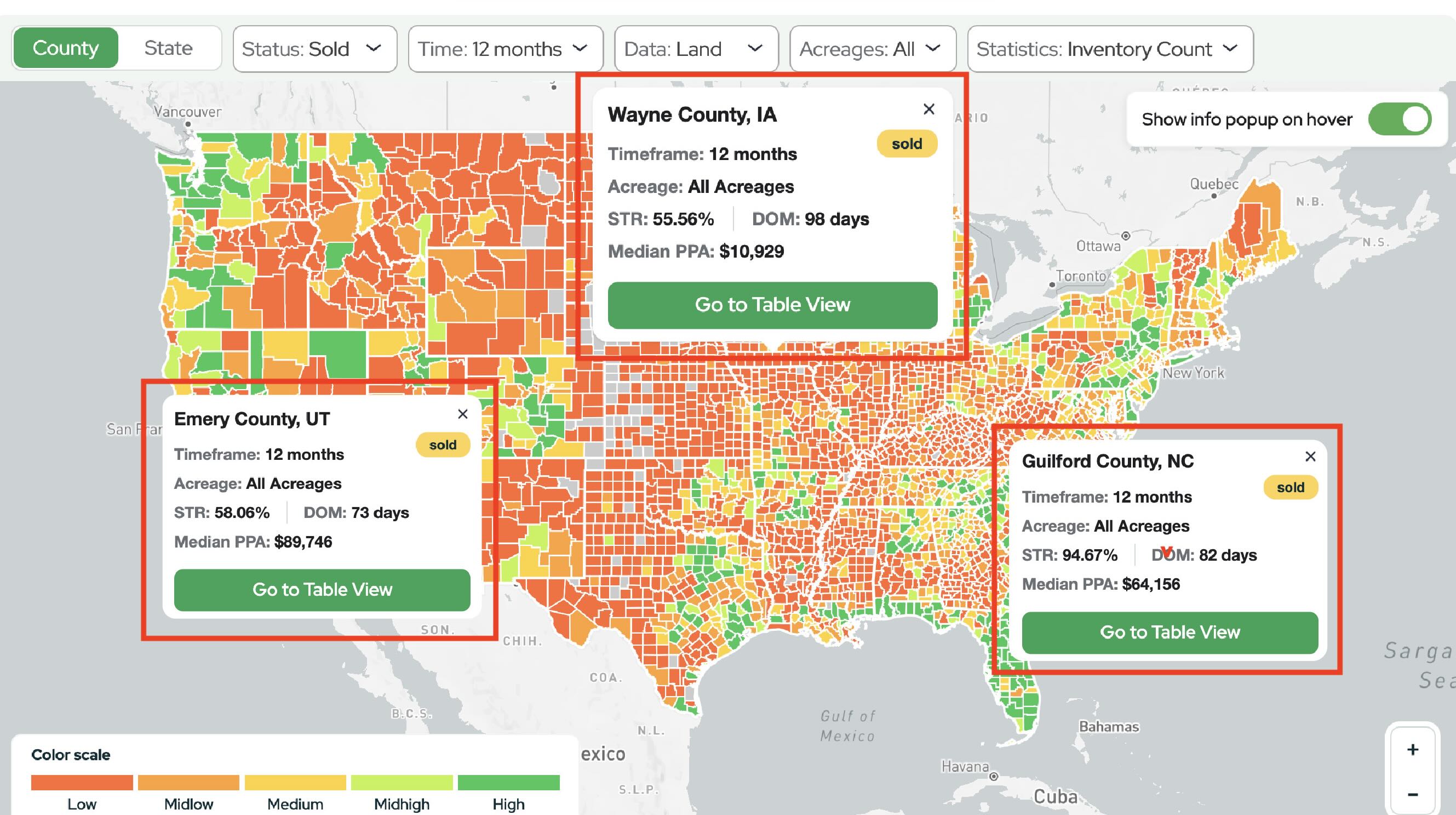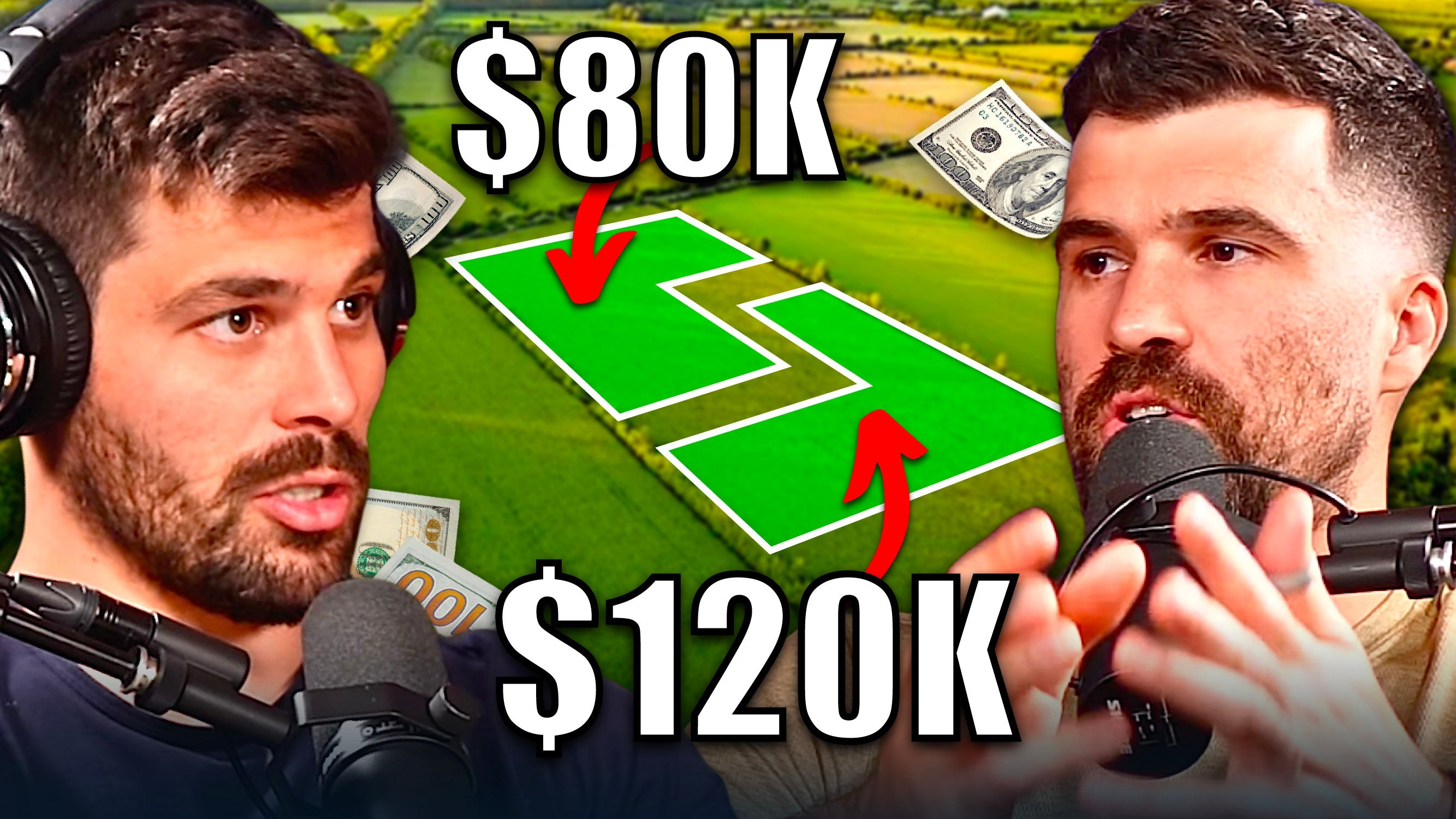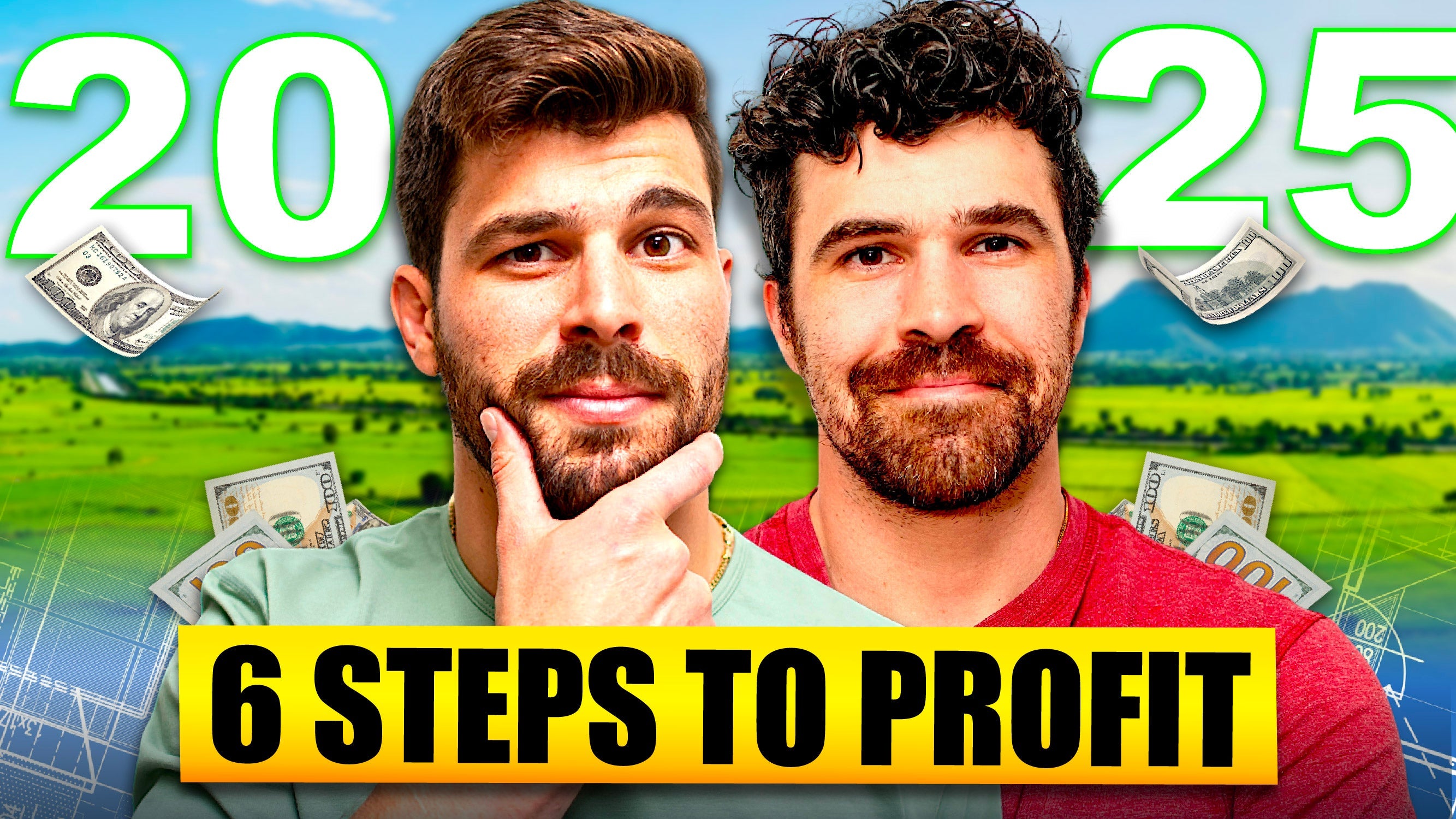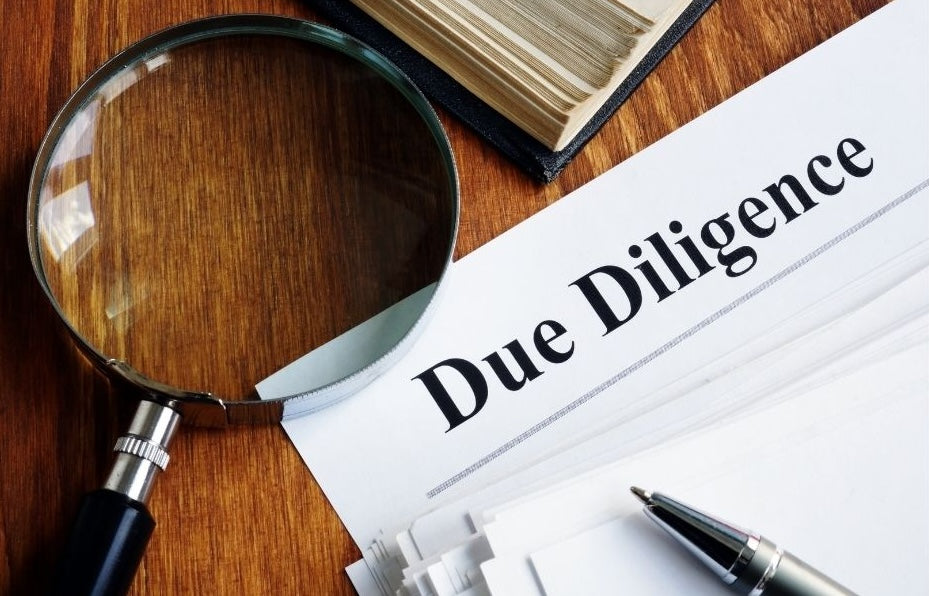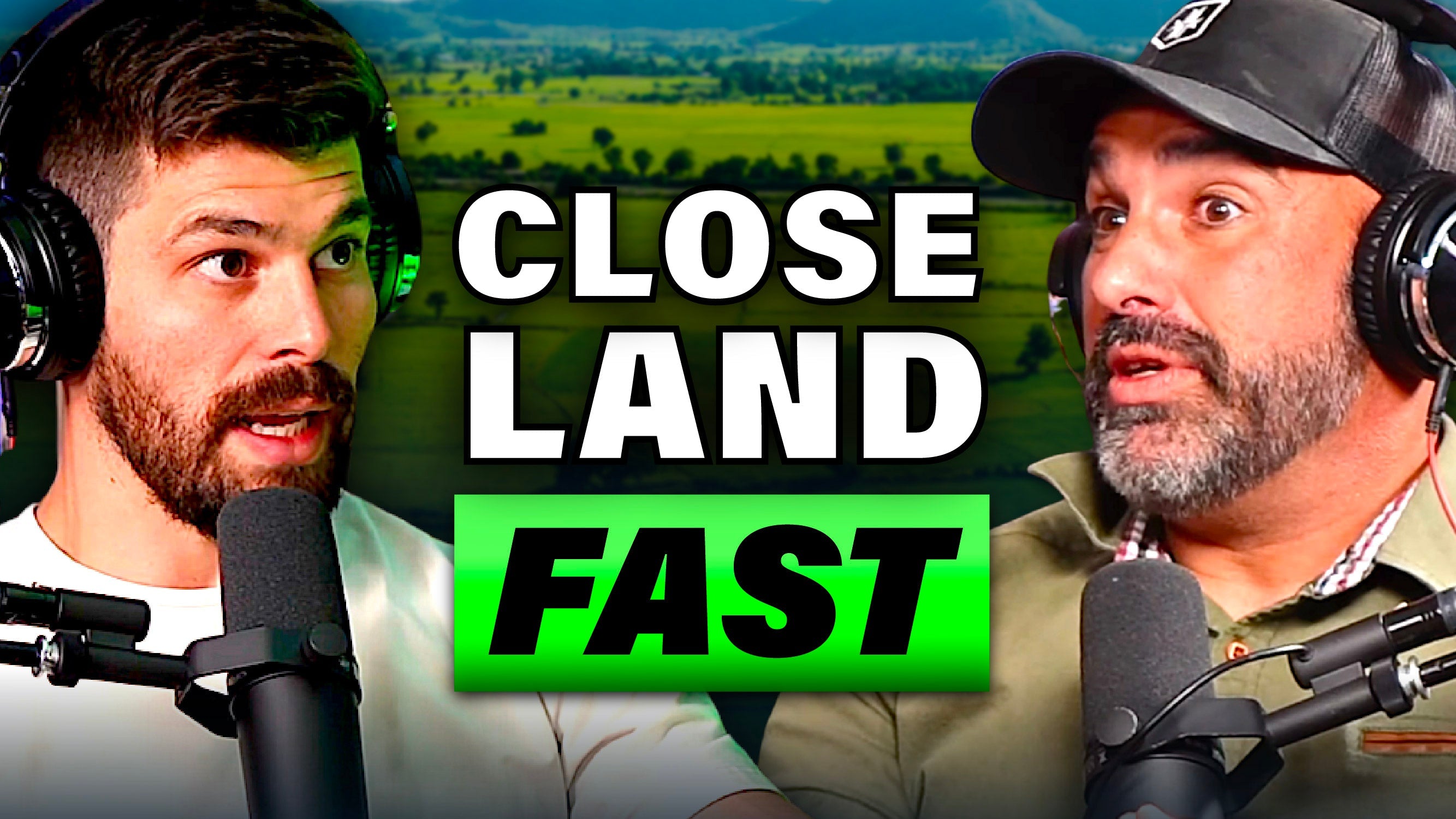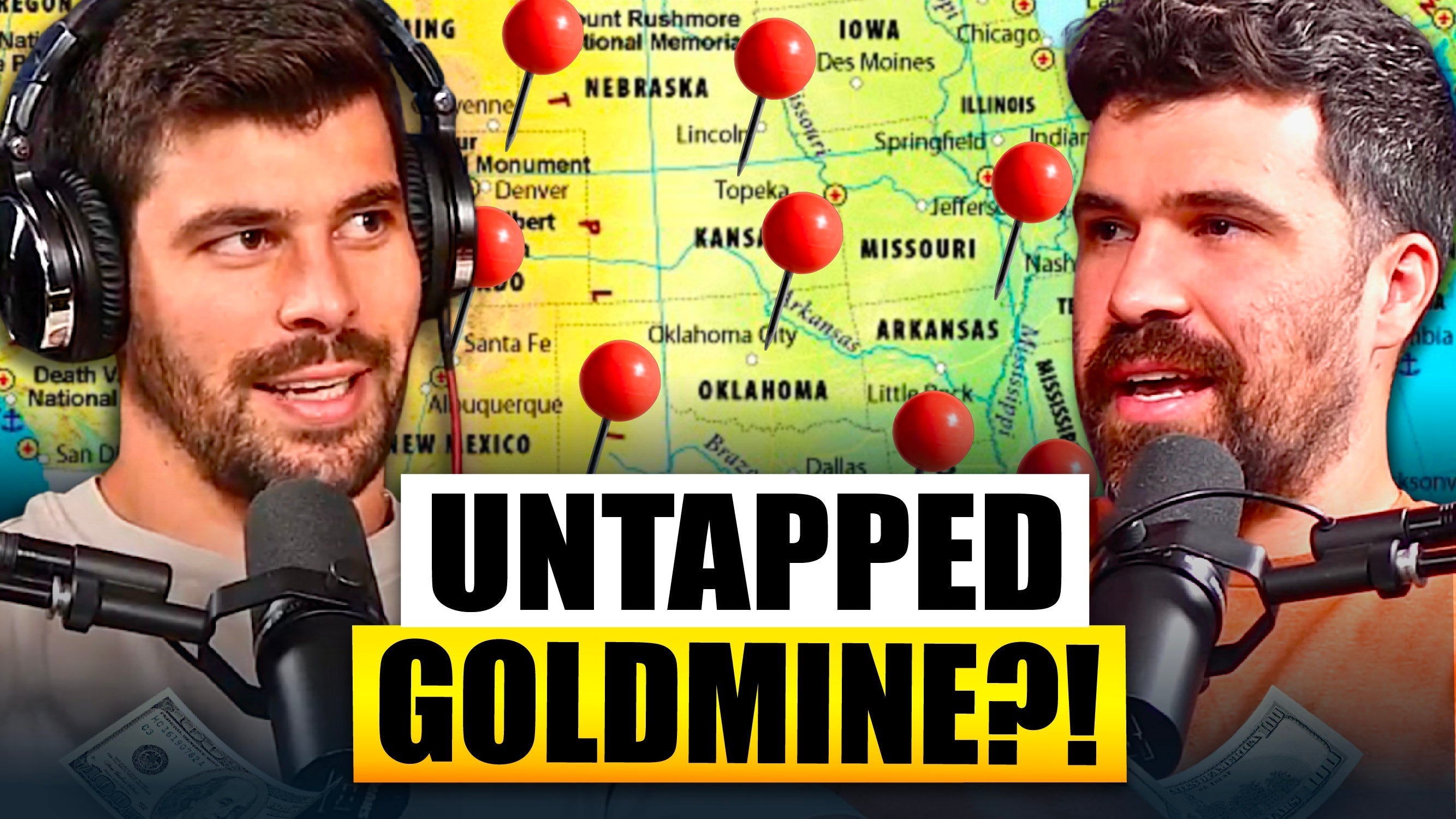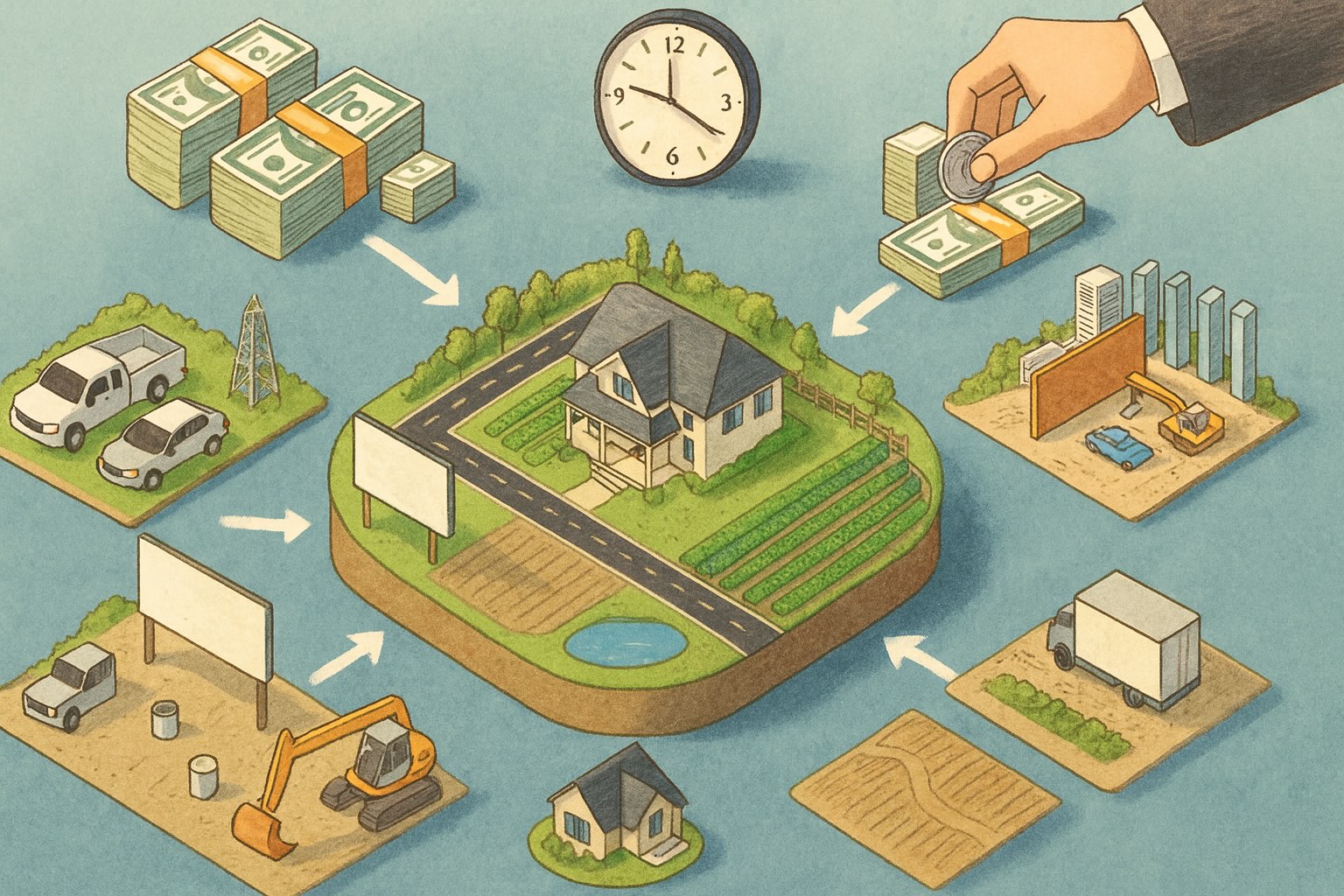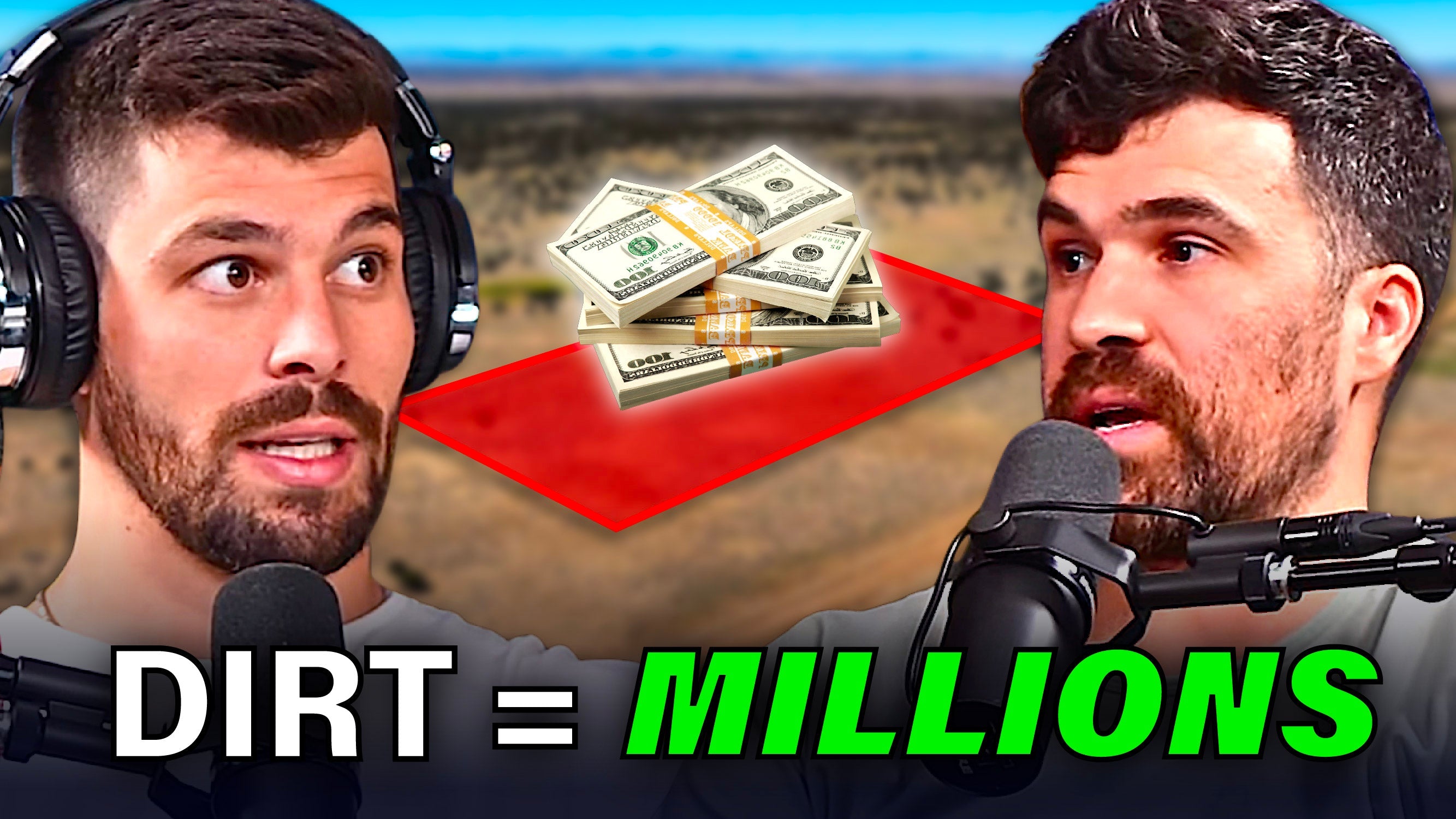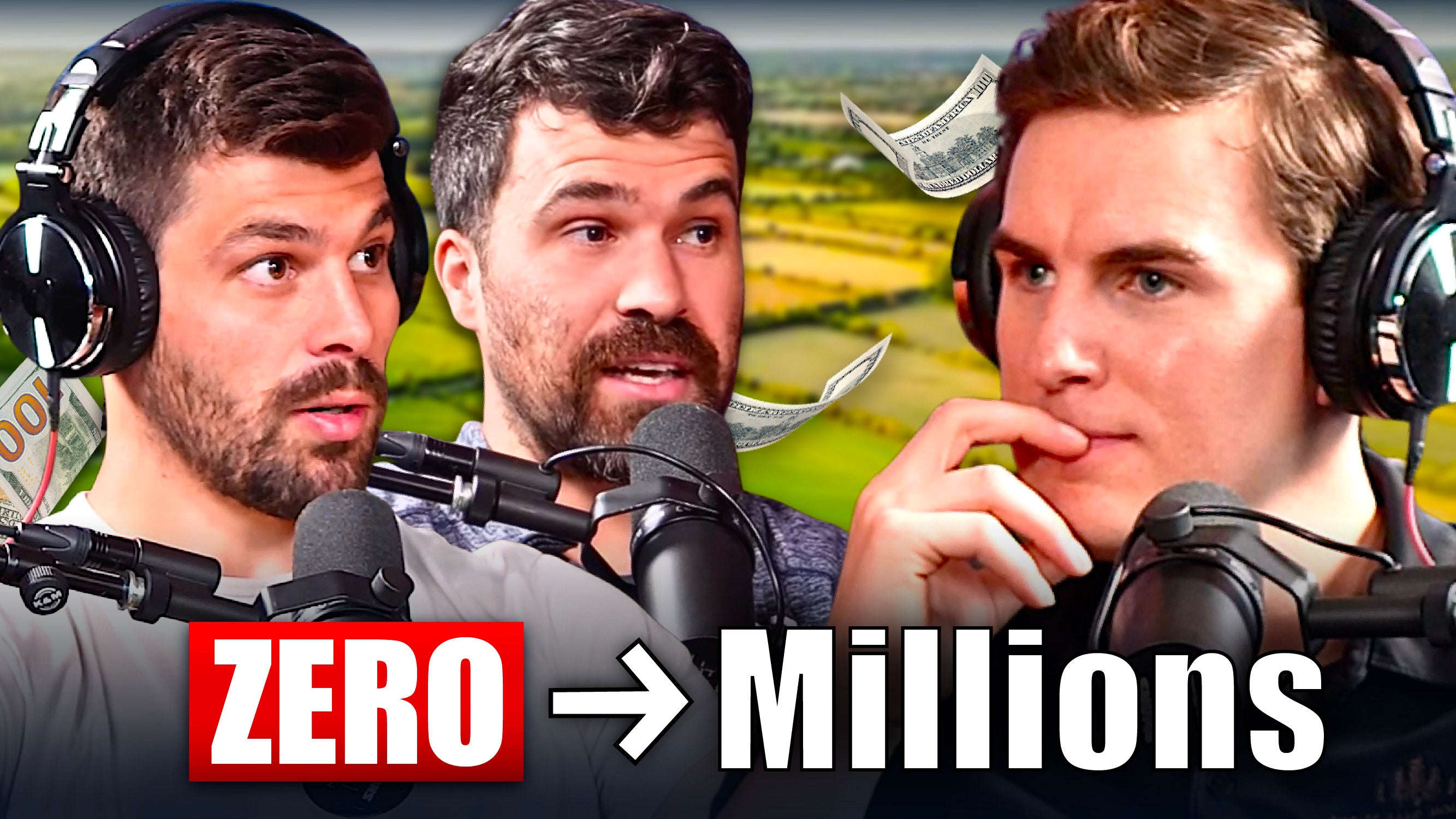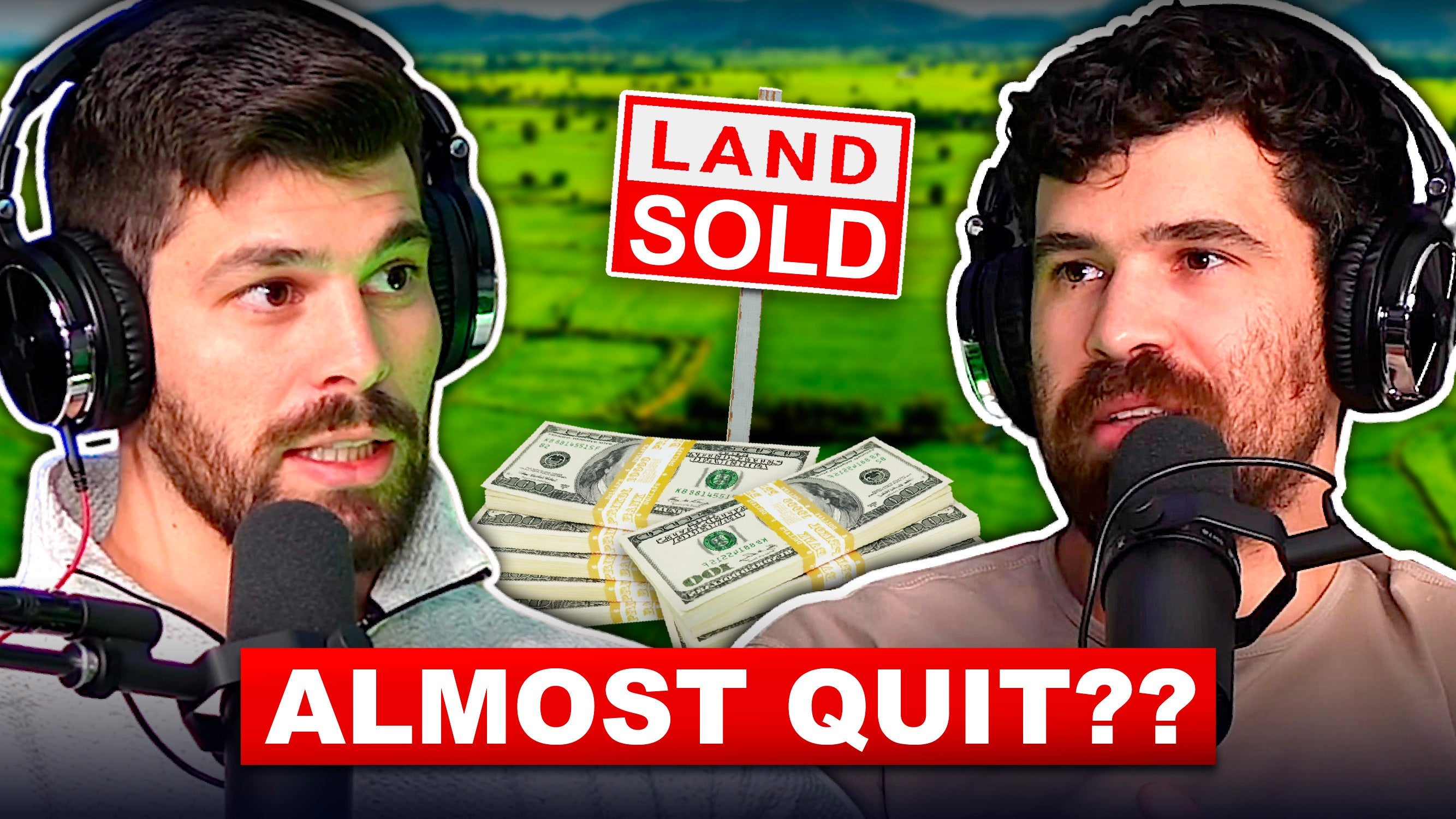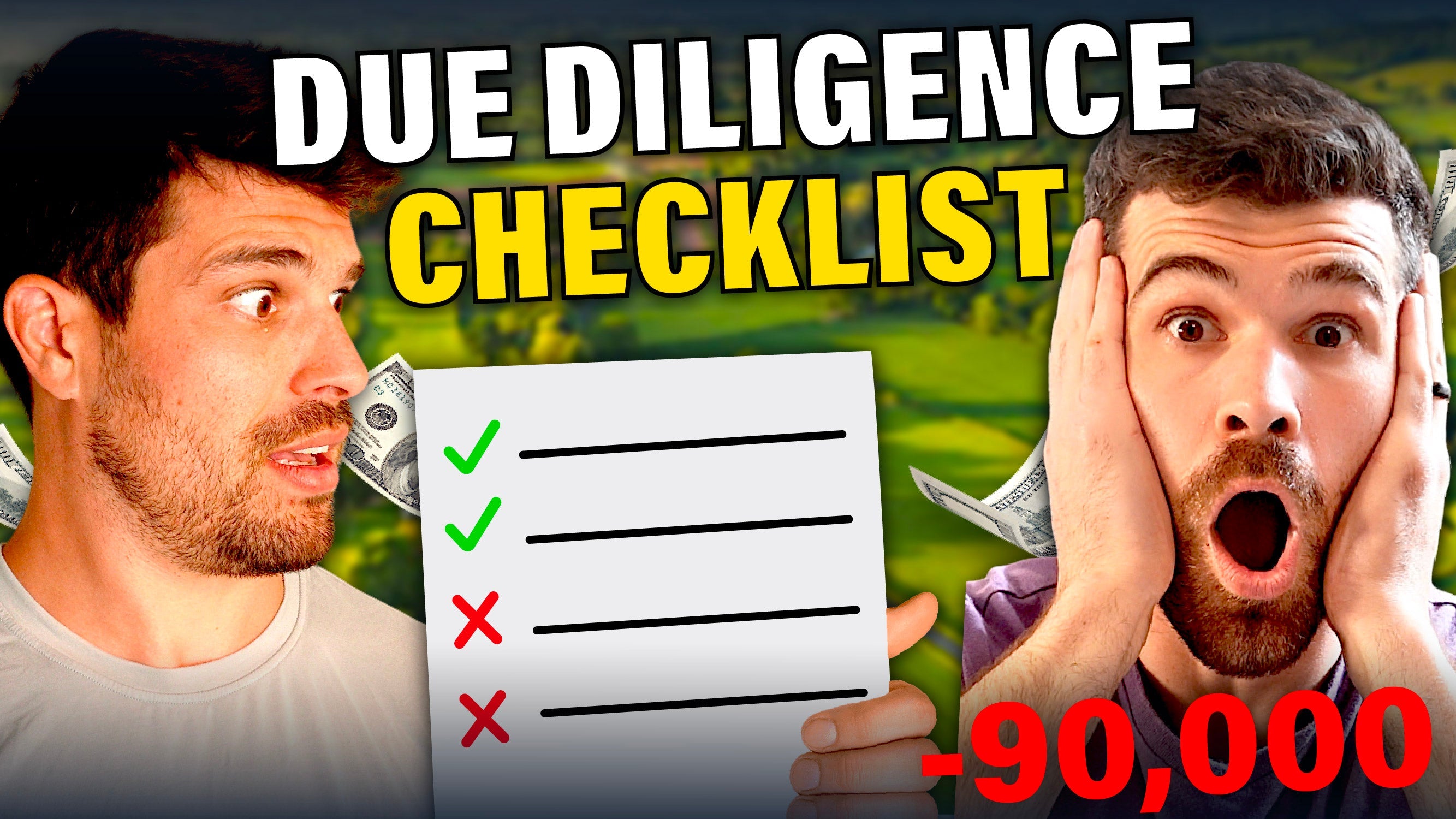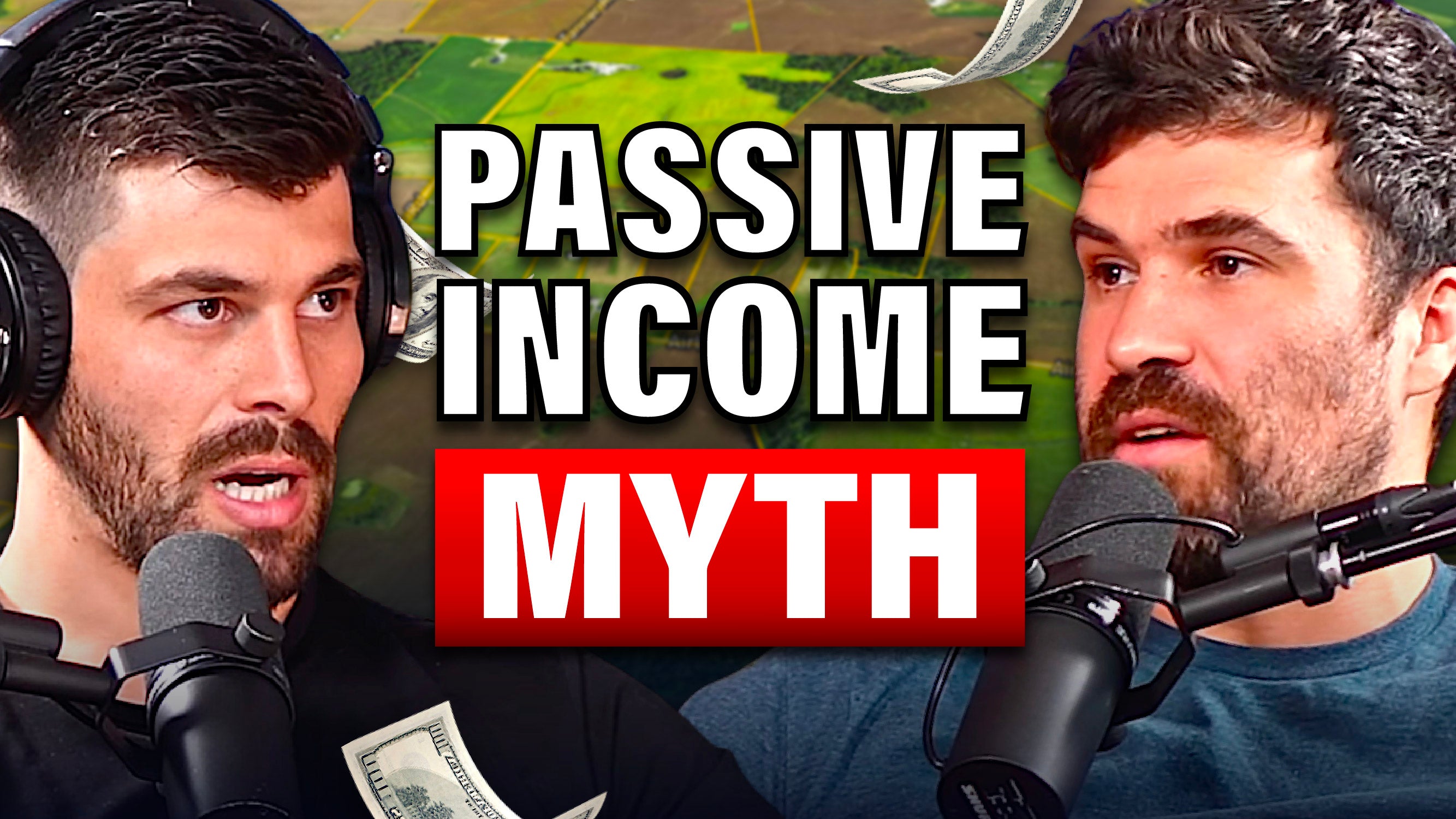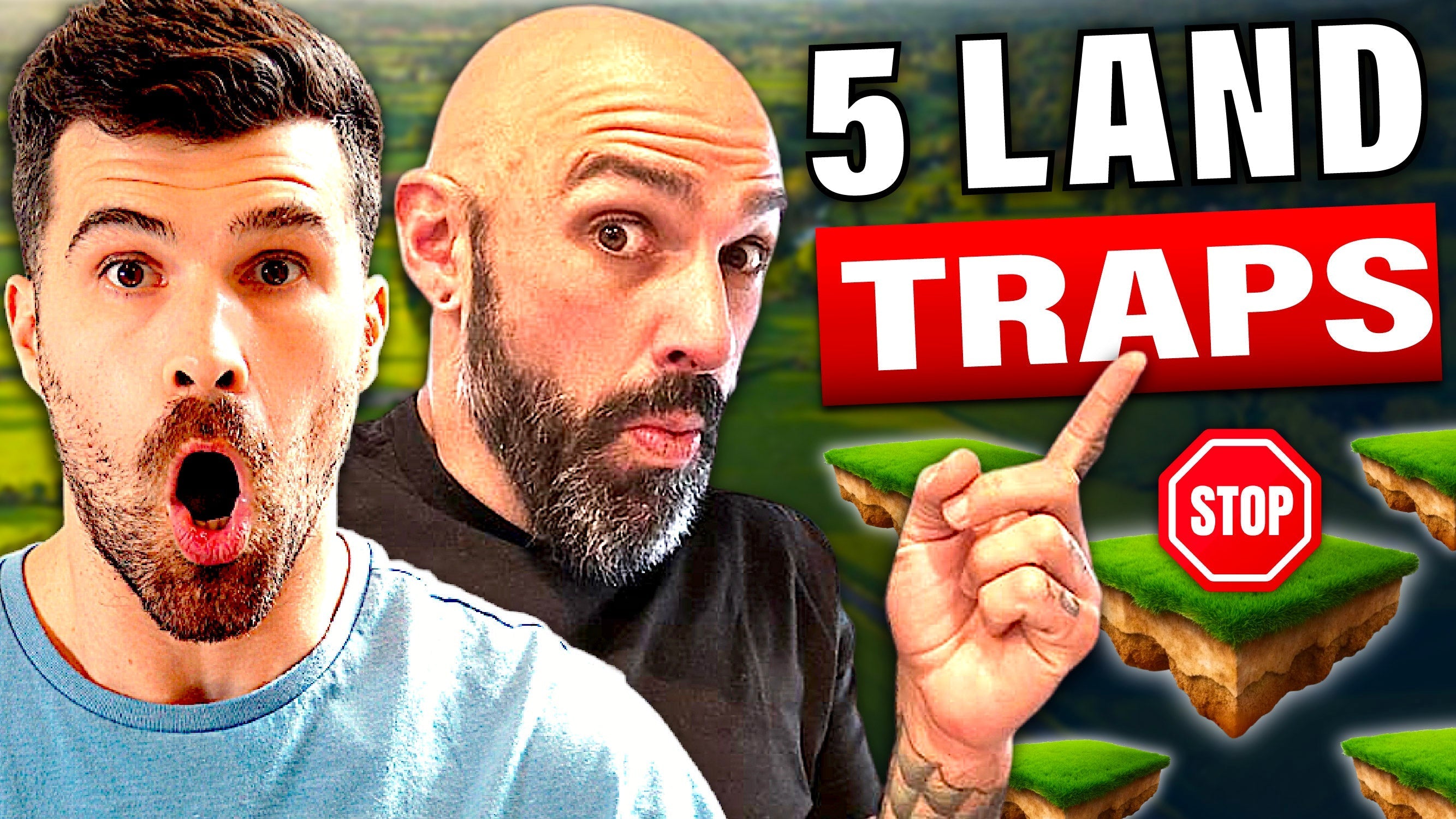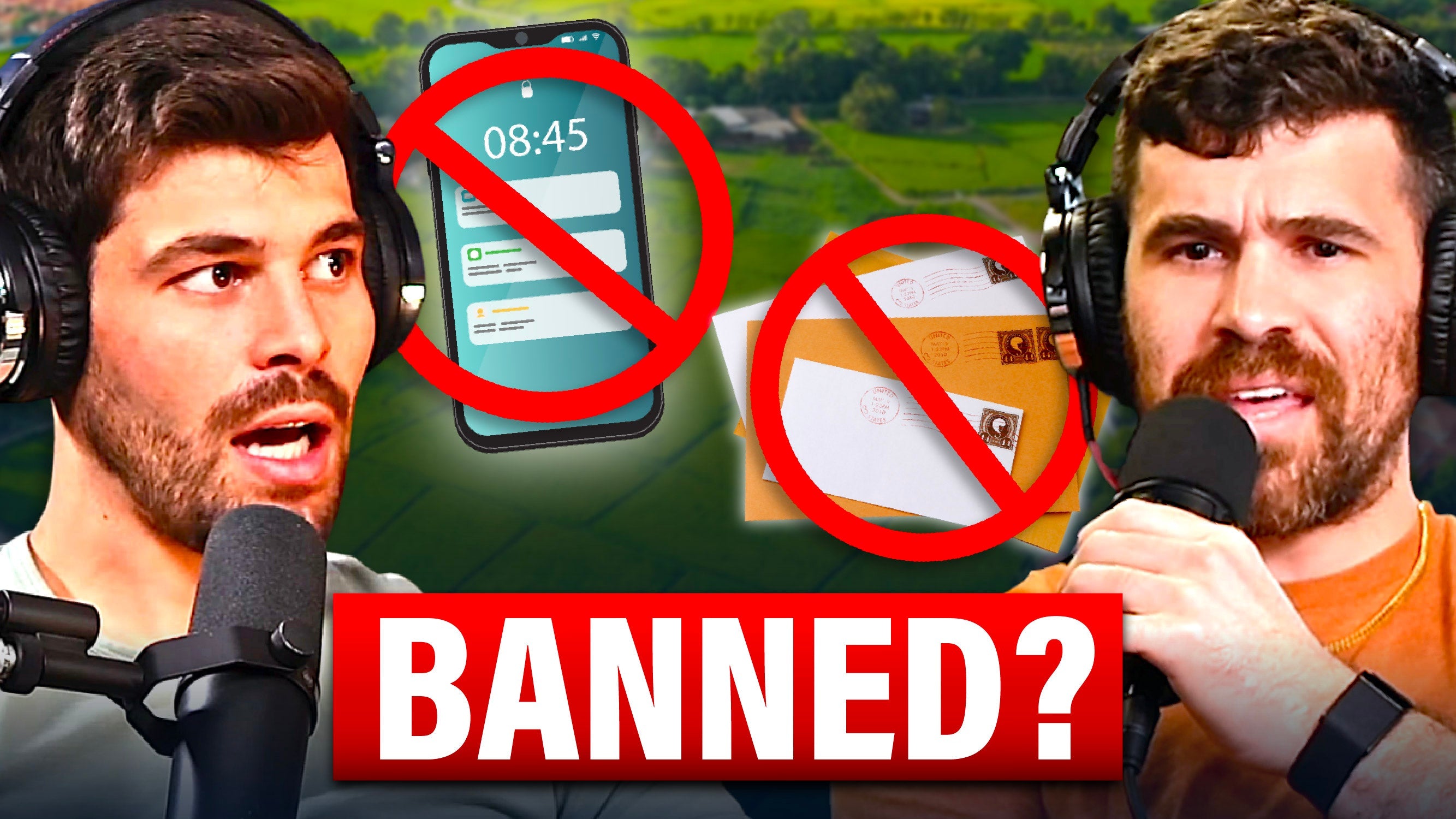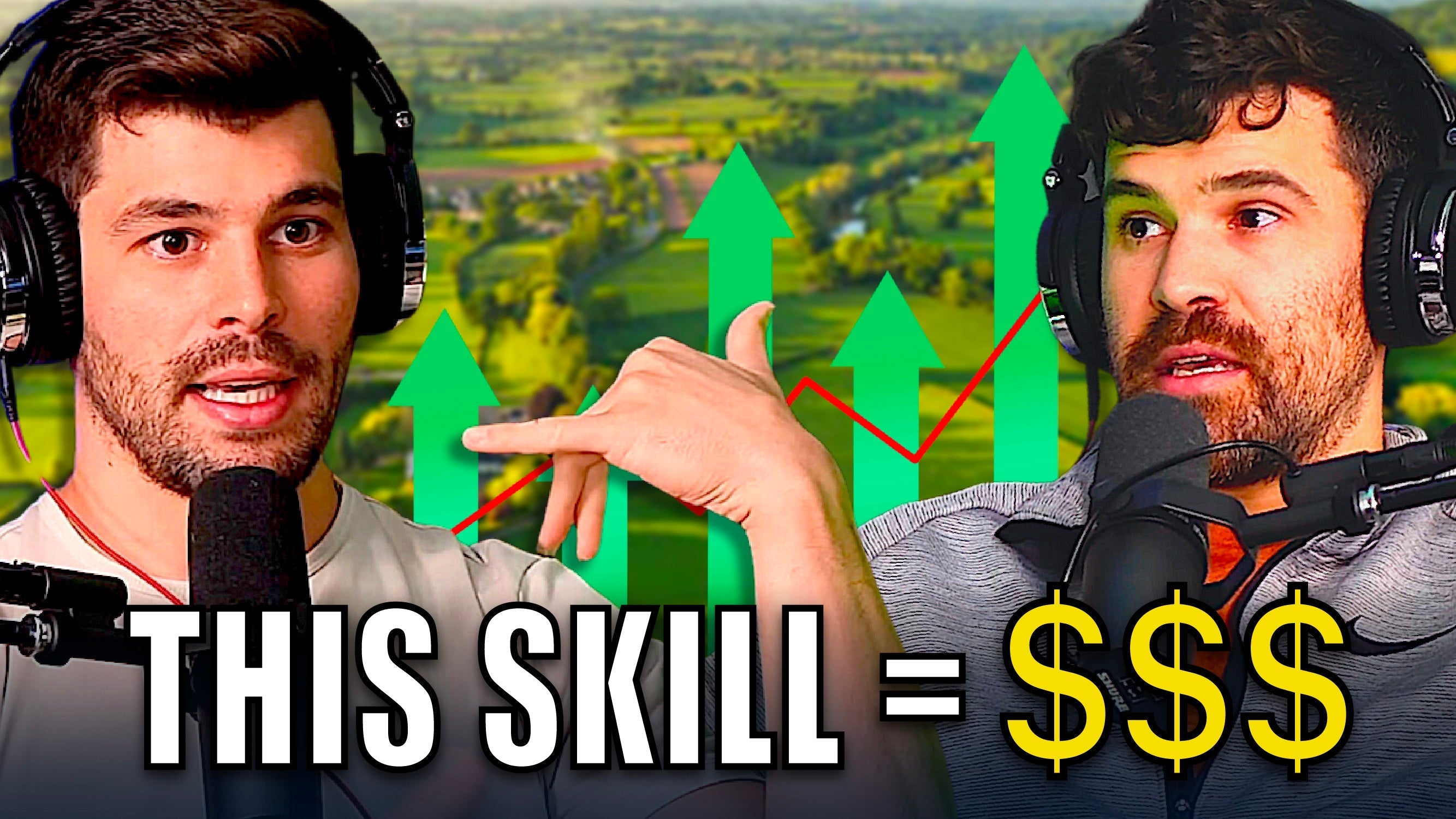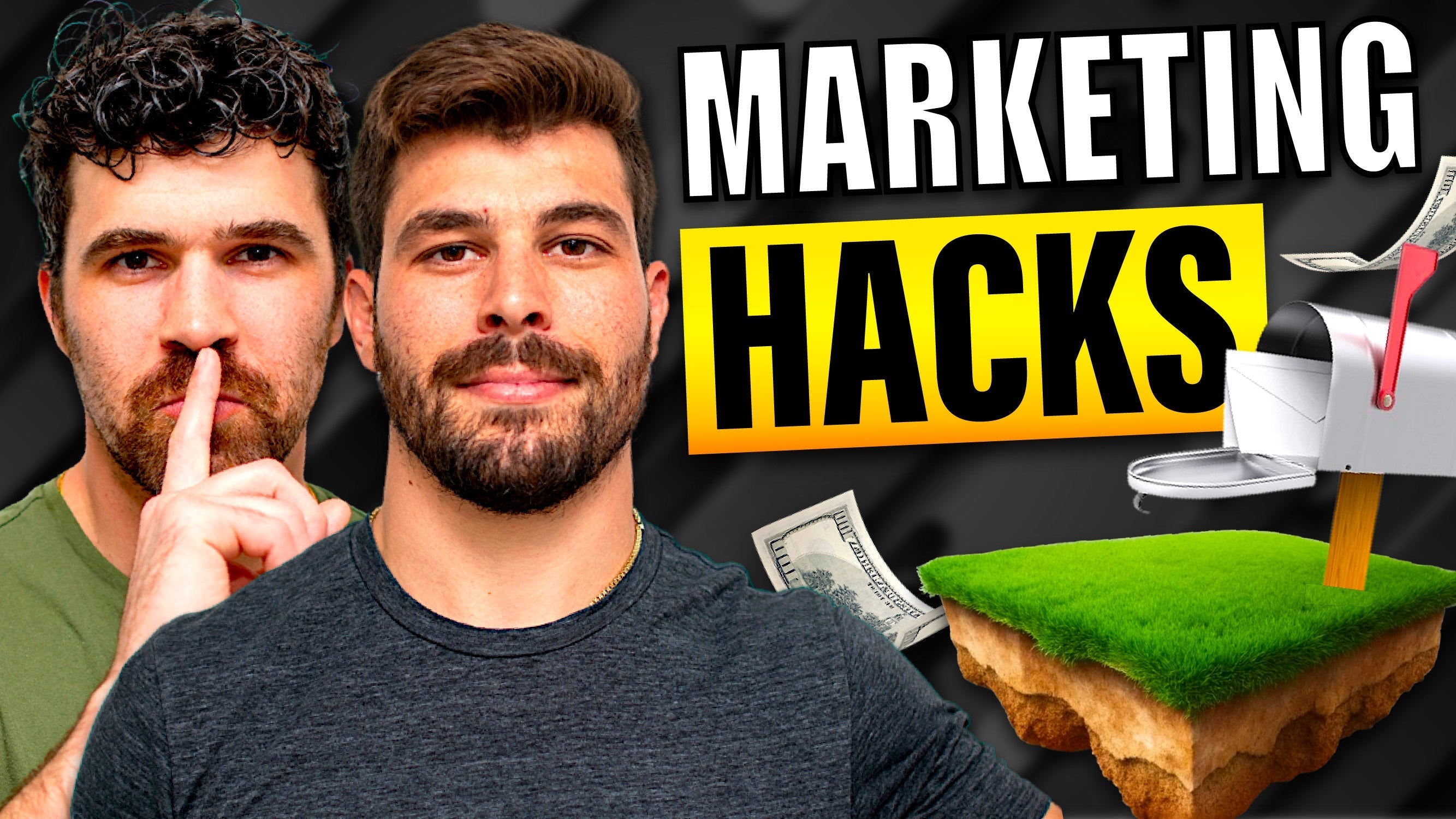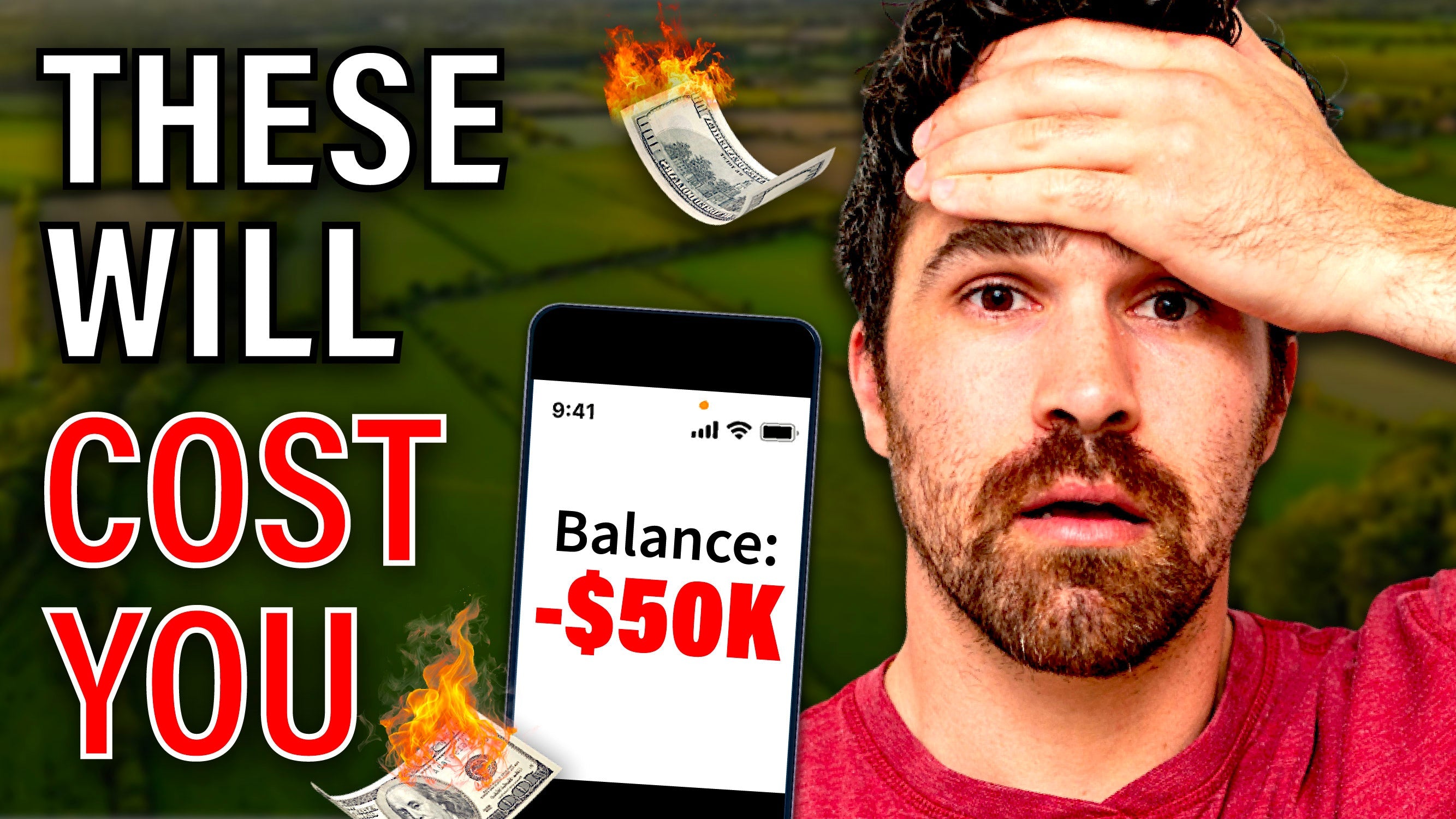Air Force Veteran Flips 40 Land Deals in Just 18 Months! (HERE'S HOW)

Featured
Building a Million-Dollar Land Flipping Business Overseas (HERE’S HOW)
Pro’s & Con’s of Holding Land as a Long-Term Investment
How Much Money Do You Need to Start a Land Flipping Business
Leaving 9-5 Job After 4 Months of Land Flipping w/ Dylan Rusch
Is Your Property At Risk for Flood? Find Out In Under 5 Minutes!
Air Force Veteran Flips 40 Land Deals in Just 18 Months! (HERE'S HOW)
" target="_blank" rel="noopener">

Join our free Discord channel!
Engage & network with thousands of new and experienced investors, participate in weekly deal reviews, and more!
JOIN
In this episode, we’re joined by Gabe Corrales, an Air Force veteran and commercial airline pilot who has mastered the art of balancing a high-flying career with a thriving side hustle in land flipping. Gabe’s journey into real estate began as a way to supplement his income, but it quickly turned into a passion and a path to financial freedom.
Despite working part-time in land investing, Gabe has built a system that generates impressive results, earning nearly six figures in his first year and projecting upwards of $250,000 in net profit for his second.
His disciplined, methodical approach, shaped by his military background, has allowed him to turn spare time into a highly profitable venture, proving that anyone can achieve success with the right mindset and strategy.
Gabe shares his expertise on presenting land deals to investors, stressing the importance of transparency and preparation. He offers valuable advice for land investors, such as ensuring margins are worthwhile, presenting deals with clear game plans, and understanding an investor’s perspective to build trust.
Gabe also reveals his secret to efficiency: leveraging a strong network of realtors, online tools, and systems to streamline his process.
Whether you’re an aspiring investor looking to take your first steps or a seasoned pro refining your strategy, this episode is packed with actionable tips and inspiration.
Don’t miss the chance to learn from Gabe’s incredible journey and gain insights into pitching, networking, and achieving success in the land business—all while working part-time!
Watch or listen to the full episode below! ⬇️
Listen to the Latest Podcast
View Transcript here
Ron A.: Hey everybody. Welcome back to the real estate investing podcast. I’m your host Ron Apke joined today by one of our students, Gabe Corrales. Gabe’s been a student for about 18 months and really cool journey. I’m excited to share with you guys today. Gabe, welcome to the show.Gabe C.: Thanks for having me, Ron.
Appreciate it.
Ron A.: Awesome, Gabe. So before we got on, you were talking about your land investing journey or before we hit record, you’re talking about your land investing journey, how you’re doing some stuff before you joined the course. Just talk about. What you’re doing before land investing because you have an amazing background prior to land investing.
Um, and I think you’re still doing some of it. Talk about your background a little bit before you got into land investing. Um,
Gabe C.: yeah, sure. So, uh, my W2 job is a pilot. I was a military pilot. I did 20 years in the Air Force and then, uh, basically transitioned from the Air Force into, uh, into the airlines. And um, about three years ago, uh, my wife and I, we started to discuss getting back into a residential longterm, uh, rentals.
Um, we had done that in the past and we sold our properties, um, just prior to having some kids. Um, Just to have some extra money for, uh, you know, for the additions of the family. Which in retrospect was probably not the best decision, but we did that anyway, and So anyway, roll the clock forward about ten years later.
We said let’s start getting back into, as in, into residential real estate. Uh, I had a real estate, uh, Agent, friend of ours, who said, hey, have you looked at land? And I said, no. So he said, you might want to look into this. So, I started to do the best I could on my own and actually started to purchase a few, uh, lake, uh, lakeside infill lots at a couple of the local lakes around here at pretty low prices, and I saw that I could flip them and Basically double my money and this is I’m talking really small scale stuff But not doing anything the way that you guys teach It was basically like guy with his eyes closed trying to figure this out, right?
No title insurance. None of this kind of Legal process was basically hey, let’s sign some paperwork call it good kind of like the good old boy way Um, without any of the legal, uh, backing. Uh, and then I realized this is probably not the way to go. And so I started to look, uh, online to see what kind of education there was.
I came across you guys, uh, so I would say, yeah, July of 2023 is when I finally, uh, signed up for the education program that you guys have. And, uh, within a few months started to actually, uh, market and purchase properties. And, uh, and here I am now.
Ron A.: Yeah. I remember you hit the ground rubbing it running. I remember, I think you might’ve, we might’ve had onboarding calls or something.
And then I remember Anthony talking about like this guy’s ready to roll. Um, and talking about, I remember him talking about you being a pilot and all this other stuff. Talk about the learning experience. Cause you closed deals yourself without title insurance, all that. There’s a ton of learning experience you had, like maybe the financial gain wasn’t that great before you started attacking bigger lots, everything like that, but talk about the learning experience you had kind of figuring out by yourself.
Gabe C.: So, it was a lot of, uh, yeah, it was a lot of learning for sure, and the, the people that I was dealing with, uh, they didn’t know what they were doing either, so it was basically the blind leading the blind, uh, which is a really bad situation, um, and then thankfully some of the county assessor’s offices, uh, would help out a little bit.
They were like, these guys have no clue what their doing, lets help em out. Um, and I actually started to call, um, Some of the law offices, trying to get as much information as I could without getting charged by the minute. Um, and. Then I said, this is not sustainable. Um, you know, we were, we were making it work.
Uh, we’re doing, uh, deeds, you know, just basically signing deeds, warranty deeds on our own. And, and I’m like, this is, this is not right. I know this is not right. And, and then of course talking to some of my real estate agent buddies, they’re like, dude, you need to get some education or you need to get some real estate agents involved.
And you need to stop selling these 2, 000 lots. You need to get into some bigger stuff. And so that’s, that’s why I decided to get some education. I said, you know what, I got education on the residential side, so why not get, uh, education on the land side. And that’s where you guys came in and, and boy, it was, it was like the perfect timing, stars aligned.
And, uh, then like you said, I just kind of went all in on it.
Ron A.: It’s crazy. Cause you went from those tiny lots to like, I feel like when you first started, like, uh, we don’t always tell people to go after huge, huge deals. And, but I remember you going after some huge subdivides, um, some crazy high potential profit deals, everything like that.
Um, was it a, I don’t think it was necessarily a mindset shift. Was it just kind of like, okay, I see what’s possible. I can flip, I can flip buy for two, sell for 4, 000. I can also spot, uh, flip, buy for 2 million, sell for 4 million. I feel like that was like the mindset shift for you.
Gabe C.: It was, and so, uh, and so that’s what I started to do, and you guys were kind of preaching, going for the bigger stuff.
You know, you can get those singles and doubles, but go for the home runs, too. You know, while you’re hitting singles and doubles, go for the home runs, go for the grand slams, because they’re out there, and the one thing, uh, I enjoyed doing that, and I never got Giant deal yet but I think the biggest lesson learned out of that going after those big deals is The time that it takes to actually sell all of that land and when you’ve got an investor involved Okay, well now he’s got potentially millions of dollars involved and he wants to see a quick turn on his money So that was a huge learning portion for me of hey, that’s fine There’s investors out there and they’re willing to let you borrow a million two million three million, whatever it may be But they don’t want their money sitting for five to ten years.
They want, you know, one maybe two years get their money back and their profit and move on to the next deal, which means Um, you know, I was looking at 900 acre parcels. There was even some like up in around 10, 000 acres. And to be able to sell that much land, boy, you’re going to oversupply the area. Even if you split it up as like, let’s say, uh, quarter, uh, quarter sections, 160 acres, you’re still going to have a lot of land out there and you’re just going to completely saturate the supply, which is going to bring prices down.
And it was just, uh, it was not, um, It was not going to be a good situation. I was going to have probably a bunch of real estate agents mad at me because I oversupply the region for one. And then for two, it’s just going to take forever to sell that much land. So I learned from that that my subdivides needed to be a lot smaller.
I can’t be subdividing into 50 parcels unless I’m doing a major subdivision. Um, with kind of like, you know, single family homes, I can’t subdivide into 50, a hundred acre parcels. It’s just too much land. And there’s just not enough, uh, people out there looking for that much land in a particular set area.
Ron A.: Before we get back to the episode, hit the subscribe button below. Turn on your notifications. If you haven’t already, we bring this content to help you guys become better land investors to have an amazing 2025 and land investing. Other than that, let’s get back to the episode. That’s a good point. Yeah.
It’s a. Yeah, you have, I’ve never bought 10, 000 acres or anything close to 10, 000 acres. And, um, especially if you’re buying, like it’s going to be an expensive purchase, obviously, and if you’re buying in like a more rural area, like the demand is what, uh, figuring that out for sure. Let’s back up a little bit.
So you, you were in the air force for 20 years again, and thanks for your service for that. Um, that’s incredible. So what kind of, I’m going to back up and I don’t usually do this as far as like, what got you into going into the air force, was it just always something you wanted to serve? Um, how did that help change your life for the better?
Gabe C.: Yeah, my dad was in the Air Force, and uh, he was a, he was a pilot as well, so every now and then, probably like, once every month or two, he’d take us up, just to the local airport, and he’d take us up flying, and we’d, you know, we’d do the, the, the climbs, and turns, and stuff, and it would just be a lot of fun, and I enjoyed it, and, and it, that, that was kind of where I got the bug for flying, and um, In my teenage years, so I got I really got into surfing and so I started to try to do surfing competitions And then I did that for about two years realized.
You know what? I’m not pro level I’m okay, but I’m just not winning the contest. I’m not doing this Like great to where oh the magazines want want you on the on the front page of the magazine that kind of stuff And then I realized boy I need to get a real job where I can get some money. And so that’s kind of where I already already had that, uh, love for aviation.
And I had already on the side had started to get my pilot’s licenses and all my upgrades in aviation. Um, and at some point where kind of I apexed in my surfing quote unquote career as a teenager, I realized that’s not going to work. So then that’s when I decided, Hey, after high school, I’m going to join the air force.
Ron A.: Awesome. Yeah, that’s really cool. Um, and I’m sure it’s kind of led you to where you are today. So you’re still doing, are you doing commercial flying now or what, what are you doing today?
Gabe C.: Yeah, I’m flying for a major airline. Won’t, uh, won’t discuss the, uh, the name here. Cause I didn’t, uh, coordinate with them without public affairs, but, uh, it’s just one of the major airlines and, uh, and I’m doing that.
And that job has actually allowed me, uh, to have liquidity and time. to be able to do the land investing. Um, so I’m working generally, uh, depending on the month, uh, anywhere between one week to two weeks a month. So that gives me, you know, two to three weeks every month to be able to be looking for land marketing sales, uh, trying to find deals, whatever it may be.
And. When, uh, when I first started, one of the things that I first started to do was actually I was trying to put boots on the ground on as much of the property as I could because I wanted to really engulf myself into the whole, uh, land investing. Like, hey, that’s fine. I can, I can work the deals. I can do the phone calls, uh, emails, all that stuff.
But I want to go out there and put my boots on the ground and feel the mud. Look at the water, look at, at whatever mess is on the property that I need to clean up and just kind of get really, uh, involved into it.
Ron A.: I love that. So let’s go back to July, 2023. You did some deals. It sounds like before smaller deals, you joined, you started attacking bigger deals.
Let’s talk about those first six months. I think the first six months. In this business are vital. It just growth, everything like that. If you do your first deal or not, it doesn’t, I don’t think it matters that much, be a hundred percent honest, but let’s talk about those first six months marketing, uh, amount of marketing, amount of deals, everything like that.
Gabe C.: Yeah. My first mailing campaign was a complete dud zero. I got calls, um, and I did some negotiating, but there was, there was zero deals that came out of it. My second campaign. Um, I got. Believe five lots out of it. Um, so it kind of, you know, it, it’s the law of averages that you guys always preach about, you know?
And honestly, I was not discouraged because you guys definitely instill in us that, hey, you just gotta push through, don’t worry. And I know there’s guys that, that go on here for months without a deal initially, and then boom, it just starts to happen. So for me, that first mailing campaign, when it was a complete dud, I said, no big deal because I was gonna.
Basically be timing to have deals or marketing campaigns about once a month for me That was just my my time frame that I felt comfortable with so that second mailing campaign. I started getting deals Um, one of them was a, my first deal was a two lot deal, um, made about, uh, it was a 10 acre and a five acre, ended up making about 24, 000 out of, out of those two lots.
And then my second deal was actually, uh, we didn’t call it survey hacking at the time, but that’s what it was actually. Um, it was a 25 acre lot, uh, nice old gentleman. Uh, he’s probably about 80 years old. He said, I’m too old to take care of 25 acres. I’m going to sell you 10. And then if I get older and want to work less, then I’m going to sell you some more of my property.
So he sold me 10, uh, acres. I was able to get a deal funder, uh, through, uh, through some of the land investing online guys. And I think we made probably about 15, 000 on that one. And, uh, it just started kind of going and going and. Obviously there was everything I started to do like anything from like one acre lots up to we were doing 20 acre lots kind of in that range is kind of what I was focusing on.
Did
Ron A.: you, did you need like proof of concept at this point? Or like obviously your first mailer didn’t work out, but from how you’re like you went after deals, you’re attacking them. It wasn’t necessarily anything you were doing on your end. I try to get people to like, Yeah, just it wasn’t the timing at that point, but you worked sellers like that’s the most important thing opposed to people like, yeah, no one signed a contract and sent it back to me.
You figured out a way to make deals happen. You had a two lot deal. You had a survey hack deal. Um, but, um, did you need proof of concept at this time? Are you like that? This makes sense.
Gabe C.: No, it made sense to me and really. From having done my smaller deals before I met you guys. I was like this works. I just need direction.
I need guidance I need someone to keep me in the lane so that I don’t go, you know out of the ballpark And so having your education was like, okay now this this all makes sense to me now And now I actually have focus and kind of a black line to follow As I’m starting to go through You know creating this business and starting to make some money
Ron A.: Yeah.
So 2023, what did you end up netting? Did you close those deals or were some of them not disposed till 2020?
Gabe C.: 2023 I, so really I started with you guys in July of 23. Um, I went through, uh, your training program basically all of August and into September and then September is when I first launched my first marketing campaign.
October was my second marketing campaign. And then in November is when I closed on my first two deals. Um, and then December I got two more deals that you guys, I actually assigned the sales to you guys, but that didn’t happen until January of 24. But that was like my first, uh, kind of cash infusion, uh, from land investing, uh, land investing online, where I go, okay.
These guys are real, this process works, and let’s go forward.
Ron A.: So, 2023, as far as since July, you had five deals, quote unquote, purchased, or was that two of those deals were in January? Okay, five deals purchased.
Gabe C.: Yep. Yep. Yep.
Ron A.: Okay. No deals sold, five deals purchased. Okay, let’s talk about 2024, your growth in, I mean, we’re Just started 2025.
Obviously this is your first full year in this business or last year was your first full year in this business. Um, let’s talk about kind of what the year looked like, what numbers look like, how you’ve grown in terms of maybe marketing numbers, anything like that.
Gabe C.: Yeah. So not including those five. I’ve, uh, purchased 35 additional ones in 2024.
Holy crap. Yeah. So, uh, 35 total lots. And so I’ve done a lot of acquisitions. And like I said, thankfully I had some liquidity and I’ve had, uh, some private money lenders that I’ve used. I’ve used a couple of family members and just some family friends, and I’ve really kind of just spread the word and people have heard, uh, just from conversations, uh, whether it’s in social gatherings or family gatherings, whatever it may be.
And they kind of get excited about, Hey, I have an option rather than putting my money in the bank and making 1 percent or 2 percent annually. Uh, Gabe over here, he’s willing to give me 15, 20 percent annually. And so I’ve been able to leverage family members and friends. To become an investor essentially, uh, probably within, I would say within six to nine months roughly is where I said, Hey, you know what, I want to transition into being an investor as well.
Not just, uh, being a land manager and finding deals. I wanted to do both. And really I kind of want to do everything and I enjoy doing it all. I love doing the, uh, the marketing. I love researching. And then obviously doing the negotiating as well. Um, I love working with investors and then I also enjoy doing the investor piece as well.
Transactional funding. I’ve done a couple of those as well. So I’ve really just kind of tried to immerse into different areas as I’ve progressed to kind of get more breadth of experience.
Ron A.: So 2024, the tax man’s going to come for you in a few months. It sounds like
Gabe C.: he is. So what did those numbers end up?
Ron A.: Yeah, exactly. Um, how many of those, uh, how many of those deals you purchased were your marketing versus, um, other types, uh, investor or you investing?
Gabe C.: Right. So here, let me, uh, take a look here,
Ron A.: man, you’re 18 months in with 40 deals. So that’s awesome.
Gabe C.: Give me one second here. I’m going to find, I’ve got that information here. I know you’re fine.
Ron A.: I know you started the investor program with us several months ago, it sounds like, which hopefully has worked out well. Um, but yeah, when you get that number, so, um, yeah, so
Gabe C.: half, half of the deals I’ve used an investor on about 25 percent of the deals.
I have been the investor and about the other 25%. I am self funding.
Ron A.: Okay. Awesome. Yeah. So what did your, what’d you end up netting last year?
Gabe C.: So net last year, uh, let’s see here. It looks like, uh, it looks like about a hundred thousand dollars roughly.
Ron A.: Nice. Okay. That’s awesome. Yeah. I mean, doing that many deals, uh, so you’ve done.
What’d you say? So I
Gabe C.: purchased, uh, 35 last, in 2024, uh, we’ve only sold 11 of, of those. Oh, so you, you got
Ron A.: a lot of equity, do you have those, uh, you got a lot of equity built in that will be coming through and then, uh, will come through in 2025.
Gabe C.: Exactly. And of the, of the, let’s see here. Yeah. Of all the ones that I have right now, of those 35.
I’m holding five. So, uh, so that the lake lots I’m holding onto because those are increasing in value And this is something that really doesn’t maybe doesn’t get talked about as much the buy and hold um, but for me seeing the values of the properties I go like every month or two and I go Oh my goodness.
They increased the list prices all around here. I’m holding on to these because I can You know if I needed the money sure I could liquidate and sell them and I would probably double to triple my money now on Those in in a year and a half, which is crazy to me, but that’s the that’s the reality of it But that’s certainly one option That that people can do then for me.
It was very easy because they were less expensive lots You know, if there are 50, 000, 100, 000 lots, I’d probably liquidate and make my money and make more money from them. But these were smaller deals, so I’m doing some buy and hold with some of those. Um, but the other ones, uh, that I’ve got in disposition, I’d say, uh, about half of them, I’ve got land managers that are doing, doing the marketing out there for me.
And then about 25%. Is, uh, using realtors and about another 25 percent is just me out there doing my own marketing off market.
Ron A.: Awesome. Yeah. Like how diverse your business is. I think it’s of the people I’ve talked to, like you have a very, very diverse business in terms of how you’re acquiring, how you’re making money in this business.
Some of it is longterm hold, which I love. Um, it’s not something I suggest to everybody, but for the people who fit and like you said, you didn’t have a lot of money out of your pocket and it just makes sense. Like who knows what those lots are going to be worth 10 years from now, 15, whatever the number is.
Um, but years from now, um, you’ve talked a lot thus far about funding. And I think so many people, I think the friends and family thing, uh, not even just friends and family, just people you talk to. Um, I think it’s such an easy way to get cheaper money. And I feel like a lot of people overlook that aspect of their business.
And Dan and I have tried to talk more about it in terms of the importance, like, okay, do three, four deals. Overpay for investors. That’s fine. You’re going to learn a lot, but then once you know how to do deals, the ability to get cheaper money is pertinent, I think, in growing your business. Talk a little bit, cause you clearly, that’s a focus of your business is not just funding other people’s deals, but getting cheaper money for your deals.
Talk about how you kind of look at that part of the business.
Gabe C.: Yeah. So for me, uh, Understanding debt is a huge, uh, piece of it. Um, there’s many ways to borrow money. You can do simple interest loans. You can do amortized loans. So I try as much as I can to do simple interest loans. And honestly, to me, uh, Private money lenders like simple interest.
It’s just easier to deal with versus an amortized type situation. So for example There’s a lot that we can buy for say 50, 000 And we can sell it for 100, 000 Let’s say I’ve got 25, 000 liquidity. Well, shoot. I need another 25, 000 So what do I do? I go and borrow 25, 000 from a private money lender and I tell them hey, I need to borrow 25, 000 And I’ll give you 5, 000 additional in one year, so you’re gonna make 20 percent uh, simple, or, you know, per annum, uh, in a year.
And they go, 20 percent per annum, that’s great. I’ll do the deal. So now I’ve got 50, 000 to buy this land, um, with, uh, with a land manager, or on my own. We, we buy it, we sell it, we make our 50, 000, let’s just call it 40, 000 profit, we split that. So now I’ve got 20, 000 profit. I give the private money lender his 5, 000 and I’ve pocketed 15, 000 and only used 25, 000 of my own money.
Um, so there’s, there’s multiple ways. That’s one way that I like to do it. So if I don’t have all of the money, I’ll borrow money knowing that. I’m going to make that money back. And the other thing that I do to sweeten the deal for my private money lenders is I give them secure the land as security. So I tell them, Hey, if for whatever reason, I don’t pay you back in a year, you are going to have 50 percent ownership.
And we’ll do a promissory note, uh, that specifies that, that the money that I’m borrowing will be held, um, or it’ll be secured by 50 percent ownership in a property. Should I not pay back in a year or, or whatever the timeframe is that we decide on.
Ron A.: So is that, um, you talked about simple interest loan a year, 20 percent or five, whatever, that 20%.
Um, is that a loan that is attached to the deal where they get paid when it sells? Or like, you’re just like, you’re going to hold that money for a year.
Gabe C.: It’s just, it’s just me and a private money lender doing an individual deal on our own, completely separate from the pro from, from the original purchase.
Ron A.: Got it. Okay. That makes a ton of sense. That’s interesting. Um, is it so talk about those conversations? Like you said you have social gatherings and that’s something anyone can do Like that’s the thing like if you know how to do land deals You can provide people better ROIs on their money than pretty much anywhere else as far as quote unquote passive Yeah, but talk about those like social gatherings where you’ve just gotten investors just from talking in groups stuff like that
Gabe C.: So the easiest ones are kids birthday parties.
You’re talking to parents all the time and whenever Some guy, you know, some dad meets you. What is the first things you guys talk about? Hey, what do you do? Generally, that’s what happens. And then so hey, well, I’m a land investor. Oh, really? Well, I do this I build commercial properties or I build homes Oh, great.
Hey, do you need some land? Yes, I do. Perfect. Um, or hey, I’m a real estate agent or hey, I’m a eye surgeon and I have a lot of money that I can put to work for you. Um, or, or whatever it may be, you know, you’re just meeting people and they all of a sudden go, wow, this is really cool. So you mean I can make more money if I let you hold it than if I keep it in the bank?
Yes, absolutely. And they go, this is a great deal. Let’s let’s start talking some business And so then I start to show them some of the deals that I’m doing and some of the properties and as soon as they see Pictures it becomes real to them if they see a photo of the land and the layout and I show them Hey, I’m going to purchase this and and I’m gonna sell it And I show them some of the market values out there, and they go, Okay, great.
I don’t want to do any of the work, but I’ve got the money to let you do the work. Here’s the money. Boom. Done deal. I’ve got money now. I’ve got liquidity, and now I can go fund some deals and make money. The investor, the private investor is making money. The land manager is making money. And someone’s buying land, and everyone is happy.
Ron A.: Yeah, that’s a kid’s birthday parties. That’s how, uh, I guess I like kids or kids are paying you back, um, getting, getting that, uh, getting some investors. Um, I haven’t heard that one, but a hundred that it’s the casual nature of talking to people, I think, instead of like going into the conversation, like a salesperson, I do this, I get investors for these deals.
I get people 20 percent ROIs. Like, Oh, what do you mean you get people 20 percent of our eyes? Can I do that too? And I’m not sure. Uh, then you just like you get them selling to you almost. Um, I think the casual nature of those conversations and building rapport, you also need to know what the hell you’re talking about.
I think. People can sniff out BS. Like if you’re, if you’re don’t know what you’re talking about, you can’t show pictures of deals you’ve done. You can’t like, how are they going to be secure? I’m sure that’s a common question. Like, how are you going to protect my money? Uh, like how do I am insured or maybe not a hundred percent insurance, but I’m sure that’s a common question, right?
Gabe C.: Correct. And so what I’ll do, and the key is talk to people that have money. So talk to your, when, when you go to your dentist, when you go to your eye doc, when you go to your regular doctor, give them your business card, you know, talk to them and say, Hey. Here’s my business card. If you’re interested, um, I can send you some information.
And so what I do whenever they approach me and say, Hey, I’m interested, I’ll almost give them like a miniature business plan, like almost a miniature partnership agreement, and say, Hey, this is what my partnership agreements generally look like. Here’s an example of one, you know, I’ll, I’ll redact it, obviously remove names and, and numbers.
And I’ll say, this is generally what I provide, uh, any investor, so you know, uh, and I give them all the information on the parcel, I’ll get it from, from the county assessor. So they go, okay, this guy knows what he’s doing, and I’ll do kind of like the due diligence checklist that you guys have, and I’ll provide them that as well.
And so basically, they, when you, when I provide them information, they should have no questions. Uh, because all the information is provided to them on generally about three to four pages to include a graphical, uh, you know, photography of the land as well. A picture’s worth a thousand words. Give them all the information, um, but then show them a picture or two of a property and, and now they can visualize it.
And I think that’s a huge, huge piece of it as well. And so for me, that has been working very well. And. I’ve, I’ve had people start to call me, um, that I, I don’t know them. And they’re like, well, I heard from so and so that you are into land. And I’m like, this is awesome. This is the way it’s supposed to be.
Word of mouth is the best marketing for my business. And it’s starting to happen.
Ron A.: That’s huge. And you can get smaller with your margin, not too small, but like you can, it doesn’t necessarily have to be buying for 50 percent of market value. If you have a 15, 20 percent annualized person or annualized return for someone, it gives you a lot more opportunity, I think, to do different types of deals.
Um, you, like I said earlier, you joined this certified investor program a few months ago to get some more deals in your pipeline, in terms of investing in some of our members deals, how’s that gone? What’s your experience been with that?
Gabe C.: So far, so good. We have a couple of deals that we’ve done, um, and they are in disposition right now.
Um, we almost had our first, uh, close and, and it fell through. But we are, we, we’re going through the process. I’m working with two guys that, uh, I believe it’s their first, very first deal. Um, so it’s been, for me, it’s actually very rewarding because I used to be a military flight instructor and evaluator.
So I have that bug to, to teach and to kind of, uh, be a mentor almost. And it’s kind of neat because you guys are, are mentoring us. And then as, as we gain experience. We’re able to mentor some of the guys that have, uh, either little or no experience. Uh, and you have the full range of guys that are like brand new guys.
You know, first, uh, first deals to guys that are experienced veterans on LIO. Um, that I’m also doing deals with. Um, and in fact, I’ve got one that’s, uh, it was a six, it’s a six parcel deal that we’re doing together. Uh, with one of the guys on LIO, and so, and, and he’s got all his ducks in a row, you know, and, and so you get the full range, and then some of the deals that come through, and maybe this is good for the guys that are submitting deals, um, they’ve gotta be, You’ve got to get me excited about the property and you’ve got to get me excited about the margins.
And if I can’t have both of those things, I’m probably not going to do the deal. Um, unless you give me a higher percentage of the deal. I like, obviously everyone wants to have a plus land, but the reality is not all land is a plus. So that means the margins have to be acceptable for me as an investor and the risk has to be acceptable.
Um, so guys will come in with the best case scenario. Hey, we can list it for 50 and sell for one 20. Well, the, the reality is that may not be the case because the comps are all over the place. Um, or, uh, on the opposite side of the spectrum, you’ll have someone that says, Hey, I’ve got, uh, land for 50 and we can sell it for 70.
Well, to me immediately, that margin is too low for me as an investor. That’s either a self fund or a double close type situation. Um, and I don’t want to touch it.
Ron A.: Yeah.
Gabe C.: So I think guys need to put themselves before they hit submit. Uh, they need to put themselves in the investors. Uh, shoes and go, would I, as an investor, uh, put down X amount of money for this deal with the amount of risk there is on this potential deal?
Uh, if the answer is maybe, then it’s going to be a no, definitely from the investor. Um, so there’s that.
Ron A.: Those are the only deals that don’t get. Like, Dana and I have done a lot of talking with people who have submitted deals, and like, the only deals that don’t get funded right now from the Certified Investor Program are the deals, and it doesn’t matter their price range, it’s the deals that just don’t have margin in them, um, aren’t presented correctly, and I wrote down here, presenting to investors, I’m gonna make a module, we’re gonna make a module for a course for that, um, because I think the value in that, like, getting that in the course, like, how do you do this?
Dana and I recorded some podcasts yesterday, and I talked about this for five or ten minutes, maybe, as far as, like, Don’t try to sell sea land as a plus land to an investor, um, like sell sea land as sea land, but here’s the margin. Here’s my plan. Like if you can lay out a game plan on what you’re gonna do, it’s so much more valuable than trying to, like, Gabe’s not stupid.
People, the investors who have made all this money, who have all this money to invest, they’re not stupid. So trying to like trick them into funding your deal, or maybe it’s just a negligence thing, um, but as far as, Presenting to investors is such an important thing. And I’ve gotten, you’ve, you’ve, uh, requested funding from us before.
And like the detail of yours, like, okay, this is exciting. Even if it hasn’t worked out for every deal. Um, like it, it’s like, okay, it really makes me take time and put my time and effort into looking at the deal because like, okay, Gabe put his time into this. And that’s from a investor perspective. I think it’s huge.
Like, okay. How much. Did John the, just a random name, how much effort did John put into presenting this deal To me, that’s how much effort I’m gonna put into like a value and if it makes sense for my business.
Gabe C.: Right? Yeah. And, and I think doing a module, in fact, I had that in my notes as a suggestion for you guys to do a module on how to present a, uh, a deal to an investor.
I think that’s huge if you guys would be able to do that. Um, the one other thing I was gonna mention too, Ron, is if, if guys are able to, or, or gals are able to. Uh, fund a deal, even if it’s a small deal, so put yourself in the investor role once you have enough money to do so, even if it’s a small deal, because it will change your perspective, uh, for the better, I think, and it just gives you more breadth of experience, it just, it just makes you a better business, land businessman or woman, um, where you understand both sides of the, of the coin.
Ron A.: That’s a, that’s a really good point. And I think with those smaller margin deals, guys, as you’re presenting to investors, like putting in those notes, when you submit and like, I’m willing to take 25 percent profit or something like that, where Gabe sees that come through and like, that is a lot more interesting, buy for 60, sell for a hundred and Gabe gets 75 percent of the profit.
I think it becomes a lot more interesting or I’m willing to do an assignment, whatever the, whatever it looks like, Gabe, talk about your marketing right now. What are you currently doing for marketing to getting your own deals? If anything, what does that look like?
Gabe C.: Yeah, so, so really I’ve switched over more to the investor side.
Ron A.: Okay.
Gabe C.: I, I kind of, kind of said, hey, I’m going to take the leap more into the investor side. So my marketing really involves what you guys are sending me. Um, and, and honestly, because, and, and oh, by the way, I’m doing this part time. This is not a full time gig for me. I’m still obviously doing my airline gig.
Um, so land investing is part time for me, which is an awesome thing for me to say. I’m close to six figures my first year on a part time gig, and next year I’m projecting we’re going to be in the 250, 000 to 300, 000 net profit range. I mean, just from the, from the stuff that I have in disposition right now, we’re going to be making probably over 200, 000 net.
Um, and we’re in January. You know, I’m going to be getting more deals for the rest of the year and selling more stuff. Um, so to me, this is just like completely awesome that I can do this. Um, it’s really a, a full time part time job, but it doesn’t feel like full time because I’m not, I’m not working on this eight hours a day and no one should be working on this eight hours a day.
You should have systems in place. Like you guys talk about to make it where it’s efficient. Efficiency is key, whether it’s marketing, whether it’s, uh, transactions, uh, all the above efficiency is key. Right. So, uh, for me, yeah, I, I feel like marketing wise. I look at land all the time and I’m trying to find good deals online off market.
Um, but again, going back to systems in place, I have probably about a half dozen realtors in the area that are calling me at least once every two to three weeks with pocket listings. Hey, I’ve got this deal. The seller is willing to sell it before it goes on market. What’s the best price you can give me and then obviously at that point now I’m looking at the land Well, okay.
Let’s look at it. How much road frontage? Can I subdivide it? Does it a flip? Can I improve it? and so That alone just with the network. I have of realtors and then looking online Plus the deals that you guys are providing me. I stay very busy on on the land piece
Ron A.: That’s huge. And like, like you said, it’s part time, you’re doing a lot of investor stuff and you seem so willing to help people, which is awesome.
Like having you as an investor in the, in the community, as far as someone who’s going to help give insight, everything like that. What about some advice for someone looking to get into this business? Maybe they’re a 26 year old working at W 2 have 7, 000 saved. Like what’s your advice for someone looking to get into this business?
Gabe C.: So I would say do your research. Definitely, uh, Educate yourself. That is, that is the key. Because if you don’t educate yourself, you are wandering aimlessly. You might make some money, uh, but it’s going to be difficult, and you’re going to feel confused, and you’re going to, you’re not going to have that sense of, uh, security, and just confidence that you know what you’re doing.
Um, eventually you’ll figure it out. Uh, but it’s gonna take you a long time, I feel like. So, educate yourself. To me, getting the program was huge, because you guys just outline it so well. And, oh, I forgot this. Well, there’s a module for that. Or, hey, do we have a document? Oh, there’s, there’s a attachment area with a bunch of documents.
Or, Hey, there’s this group of people that are awesome on here, that if I ask a question, I’m probably going to get an answer within five minutes, no matter what time of the day it is or night, um, because people are different time zones all over the world, selling land, and so there’s always help to be had, um, so I would say educate yourself, and Involve yourself with a group and as you’re learning, don’t, uh, don’t necessarily wait until you feel like, okay, now I’ve achieved all the knowledge that I need.
Just start, start going through the processes. Um, as you start to learn about marketing in the modules, start to market and then as you start getting phone calls or emails, start looking at those modules as well. And generally you’re going to, the timing is going to work out perfectly as you’re going through the modules.
And as you’re doing things in the modules. The timing is going to work out where you’re going to start to send that marketing out, send that mail out, send those text messages, start to get those phone calls, emails, text messages back, start to negotiate, and everything should work out generally in a, in a proper timeline to where you should be able to get those first deals.
Um, I would say, I mean obviously there’s guys that do them in 30 days, but I would say a good average is probably that three to four month range.
Ron A.: 100 percent yeah, I think that’s very realistic and really good advice for someone looking to get started like you got to be active I think that’s the biggest thing like active in the community.
That’s one thing you’ve done such a good job of Gabe is like having A good, trustworthy, like, uh, perception, I don’t know if perception is the right word, but I’m going to use it, um, good, you just have that, you have the right perception from us, from the community, like, you give valuable input, and people see that, like, the amount of valuable input you are giving, whether it’s our Wednesday They calls, um, or in discord, like detailed responses on like helping new people.
And it’s not like you’re trying to hold anything close to your chest. Other than that, guys, thank you so much, Gabe, for coming on. If you guys are watching on YouTube, hit the subscribe button below. Leave us a comment. Uh, let, let me know what you think about Gabe’s journey, everything like that. If you’re listening on Spotify or Apple, leave us a review, share this or friend.
Thank you so much. We’ll see you next time.
As always, thank you for joining. Please do us a huge favor and like, and subscribe our YouTube channel and share this with a friend. It really means the world to Ron and I, but more importantly, it could help change the life of someone else. Thanks for joining and we’ll see you next episode.
